There's a changing of the
Soviet Guard in 1964 as the Central Committee forces the resignation
of
Khrushchev who, especially after the
fiasco of the Cuban missile crisis and some wild and
unsuccessful experimenting
with new agricultural policies, as by this time convinced
enough members of the Central Committee that
he is too capricious to continue to
be
entrusted with leadership of the Soviet Union.
This brings Brezhnev and
Kosygin to co-lead the Soviets.
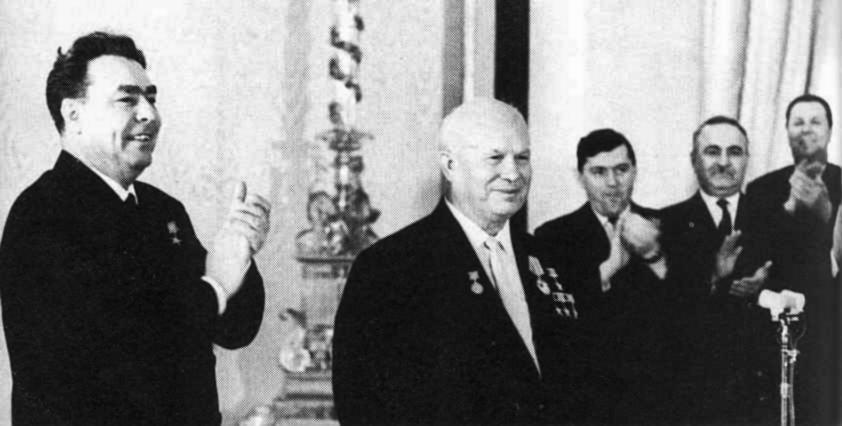
Leonid Brezhnev (left) celebrating
Khrushchev's 70th birthday – April 1964
while secretly plotting
Khrushchev's overthrow (in October his Party
colleagues
stripped him of all political positions, forcing him into retirement)
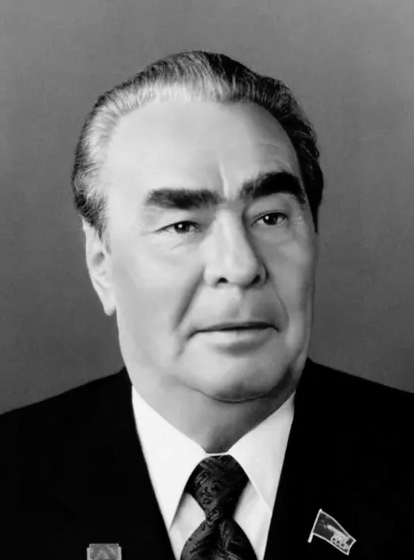
Leonid Brezhnev – Communist Party General Secretary (1964-1982)
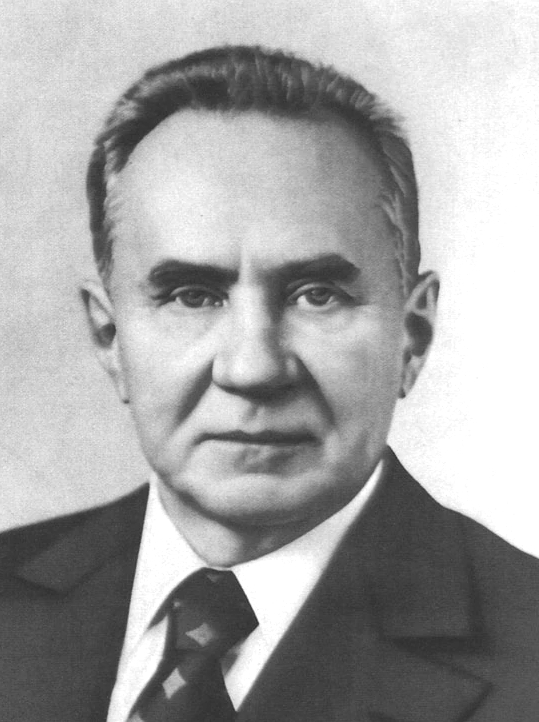
Alexei Kosygin – Soviet Government Premier (1964-1980)

 |
THE ARAB-ISRAELI "SIX-DAY WAR" OF JUNE 1967
|
|
|
|
American attitudes about the strife in the Middle
East caused by the mass migration of European Jews into Palestine after
World War Two remained generally neutral, Americans finding cause to be
sympathetic to both sides in the conflict. The Jews had been massively
abused by Hitler's Germany and had long suffered attacks, even in the
name of European Christianity. America did not want to repeat that
mistake. But the Palestinians themselves had not been part of the
discrimination against Jews, and Palestine over the centuries had been
an exceptional picture of toleration among Arab Christians, Arab
Muslims and Arab Jews. But the mass invasion of the Palestinian
homeland by these European Jews would change that picture of toleration
greatly.
The Arab world, although since the end of
World War One divided greatly as "nations" (Egypt, Syria, Jordan, Iraq,
Libya) by Europeans (England, France, Italy) rather than by the Arabs
themselves, found a deeper sense of Arab unity around this matter of
European Jews invading their Arab land of Palestine (nearly as holy to
them as it was to Christians and Jews). And ambitious Arab leaders, of
whatever nation they found themselves serving as president (most of the
British-designed monarchies of those countries had recently been
overthrown by Arab military officers), the Israeli challenge provided
them a major opportunity to build a sense of Arab unity around their
own personal leadership. Among those Arab leaders attempting to build a
broader sense of Arab nationalism was President Nasser of the United
Arab Republic (Egypt).
Most proudly and loudly Nasser began to
demonstrate to the Arab world a buildup of Egyptian arms and military
personnel, designed presumably to invade neighboring Palestine in order
to liberate Arab Palestinians from their Jewish oppressors. So
concerned was the larger world (however American President Johnson was
personally so preoccupied with Vietnam that he largely avoided this
growing crisis) that the United Nations Secretary-General U Thant
traveled to Egypt in late May of 1967 to get Nasser to back away from
this growing confrontation with the Israelis. But that was not going to
happen – because this extravagant political drama was key to Nasser's
candidacy as the leader of the entire Arab world.
But Israel, unwilling to wait around and
see what it was that Nasser had planned as his next step in his
campaign, busied itself with its own military mobilization, and –
without any particular warning to Nasser to back down – in June simply
struck at the heart of Nasser's military operation. The blow was so
quick and thorough that Nasser's air force was caught completely
napping, and was destroyed on the ground before the Egyptians could get
their planes in the air. And without air cover, the Egyptian army found
itself completely helpless in defending itself in the battles that
followed in the open desert separating the two countries. In just the
matter of a few days the Israeli army was able to rout the Egyptian
army and roll the Egyptians all the way back to the Suez Canal,
shutting the Canal down in the process (sunken ships blocking further
passage through the Canal).
Foolishly, the neighboring King of Jordan
and President of Syria decided to bring their armies into action in an
effort to take the pressure off of Egypt, causing the Israelis then to
turn on both countries, throwing the Jordanians out of the West Bank
region (formerly reserved for what was left of Arab Palestine) and
moving into the Golan Heights from which the Syrians had frequently
attacked northern Israel. And all of this was achieved in less than a
week.
It was this event that finally swung
American attitudes strongly in favor of Israel – Israel as the victim
of Arab nationalism and as the proud defender of its own national
rights. Americans loved that sort of heroics, especially the American
press which played up the pro-Israel drama hugely.
The Johnson Administration however played
things more cautiously, refusing to recognize officially the Israeli
occupation of all of Palestine, but doing nothing in particular to help
the Palestinians who at this point found themselves more or less
helpless under Israeli occupation.
Indeed, the Palestinians' sole political
advocate group, the Palestinian Liberation Organization or PLO came to
be regarded by Americans (by way of the strongly pro-Israeli American
press) as little more than a criminal operation needing to be crushed.
From this point forward, any support of the Palestinians was viewed as
"anti-Semitic" (a major American "no-no" since the days of Hitler),
despite the fact that the Arabs themselves are also a Semitic people!
But once again, stereotypes and slogans served very nicely as all the
analysis Americans felt they needed in coming to their quite strong
opinions on the matter.
Interestingly also, Christian Americans
would be some of the most enthusiastic supporters of Israel, not
realizing that huge numbers of Palestinians were themselves Christians,
but at this point Christians without any visible support from the
larger Christian world. Christian Arabs, unloved by either Arab Muslims
or Israeli Jews (or Christian Americans, for that matter), consequently
began to leave the land of their Christian ancestors, to try to find
safety elsewhere. Tragically, because of this lack of interest in the
Christian community struggling for survival in its Palestinian
homeland, the light of the Christian gospel that had existed in the
Holy Land since the founding of Christianity 2,000 years earlier,
especially concentrated in such places as Jerusalem, Bethlehem and
Nazareth, began to go out in Palestine.
For a Christian America supposedly
interested in seeing the advance – not the retreat – of the Christian
gospel, this counted as a huge loss (although most American Christians
were very uninformed on this matter)!
|
In the Middle East, things
are heating up again ... under the initiative of Egyptian President Nasser
who is playing the 'Israeli
card' in order to swing a rising spirit of Arab nationalism under his authority
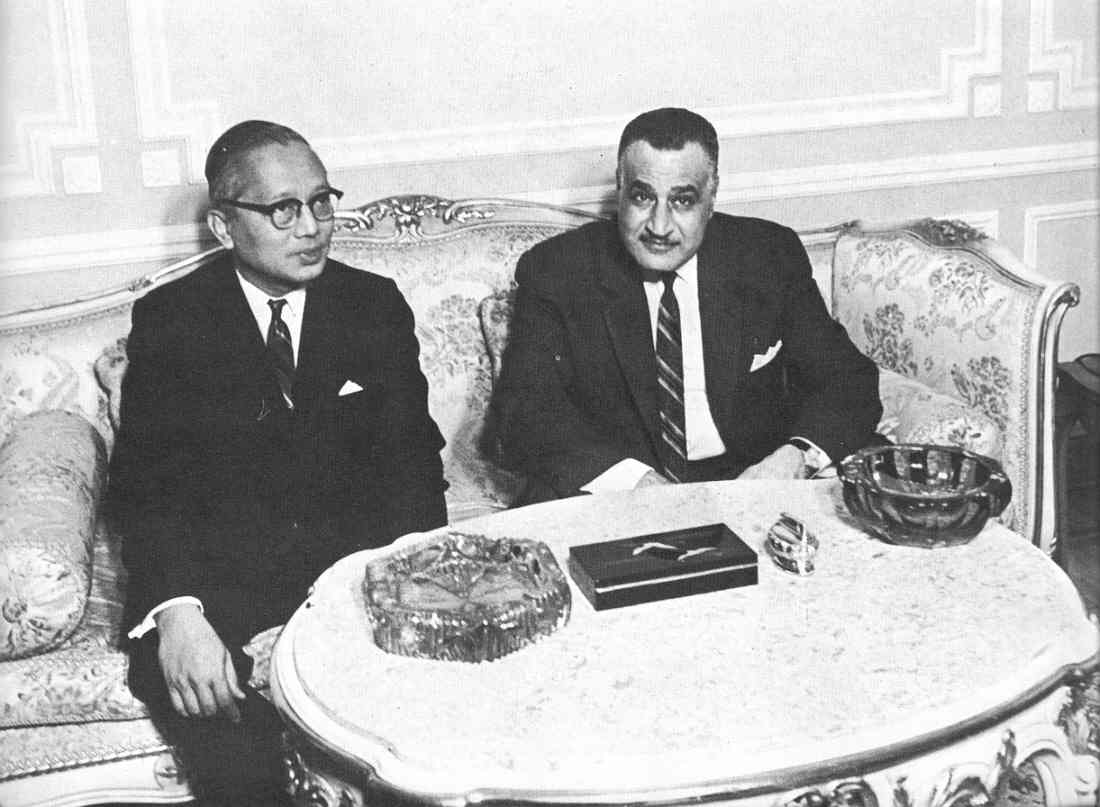
United Nations Secretary
General U Thant meeting with Egyptian President Gamel Abdul Nasser in
late May 1967 to try to
back the Egyptians down from a growing confrontation with the
Israelis
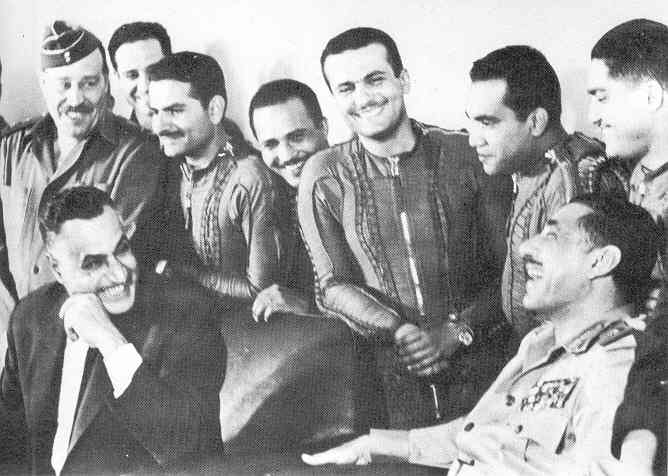
Egyptian President Gamel
Abdul Nasser and Egyptian Abdel Hakim Amer enjoying
a moment of laughter
shortly before the outbreak of the June war with Israel. After the Egyptian
defeat,
Amer was arrested for plotting to overthrew Nasser – and
committed suicide.
Israel strikes the first
blow – 7:45 a.m., June 5, 1967
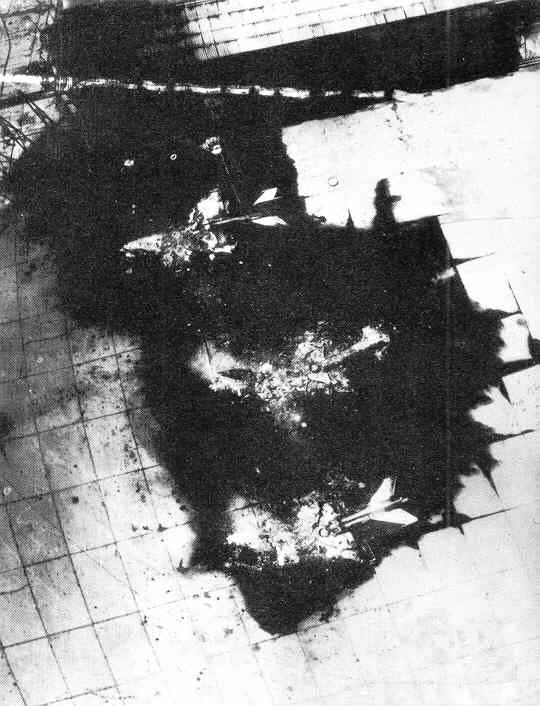
Part of the Egyptian air
force caught unprepared for an Israeli surprise attack – June 1967
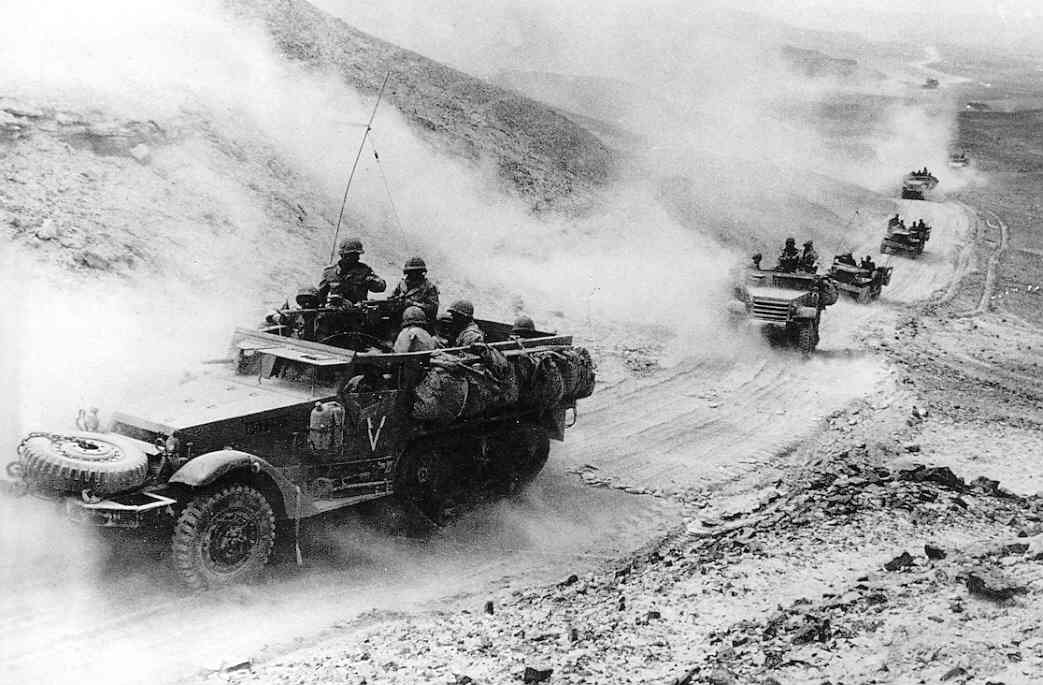
Israeli armored vehicles
advancing through the Sinai desert – June 1967
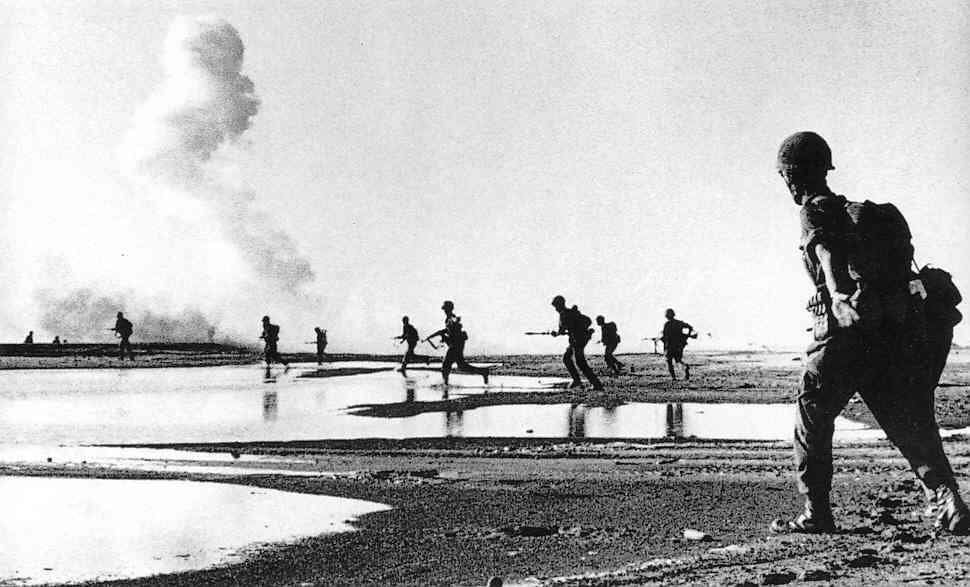
Israeli soldiers advancing
on Egyptian lines in the Sinai – June 1967
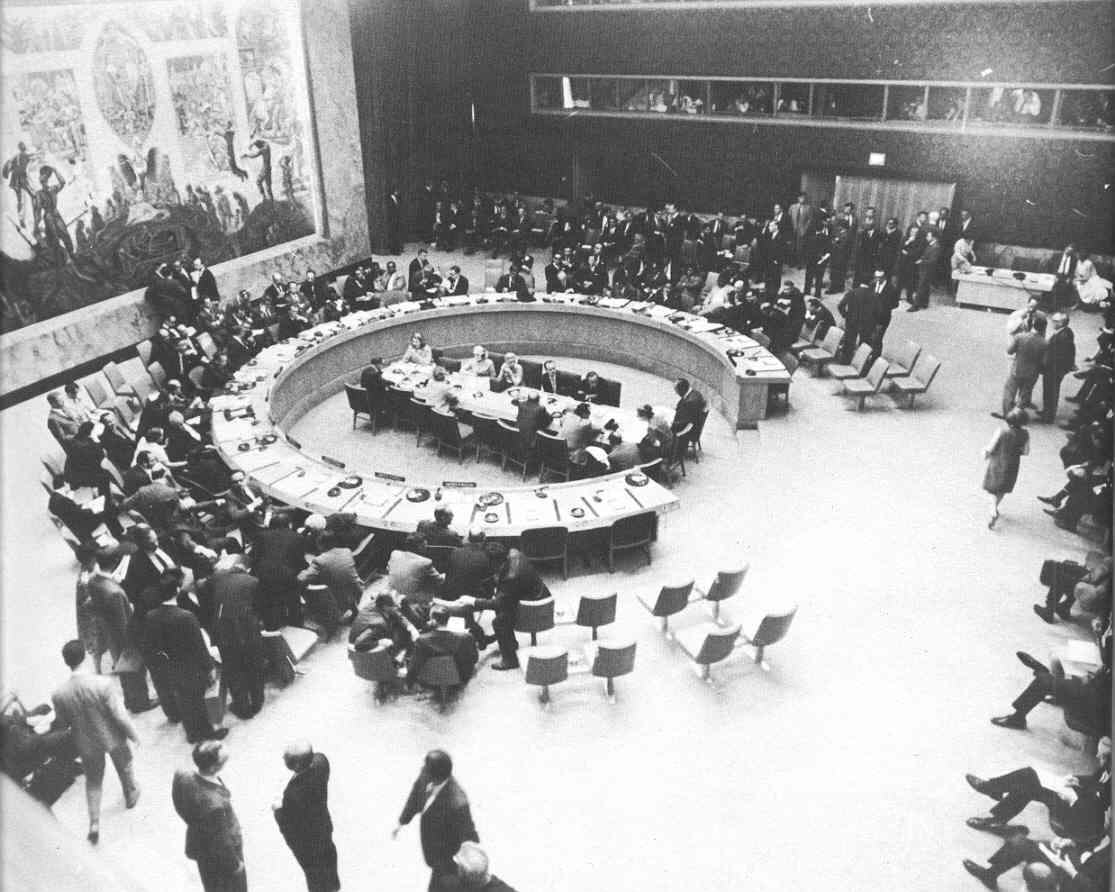
The United Nations Security
Council meeting on the Mid-east crisis – June 5, 1967
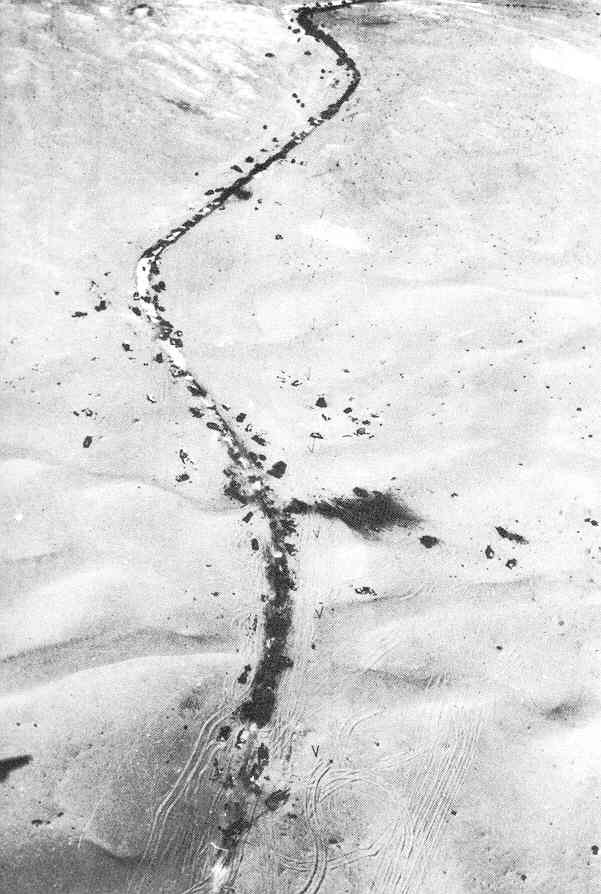
The burned-out remains of
Egyptian armored vehicles and tanks at the Mitla Pass – June 1967
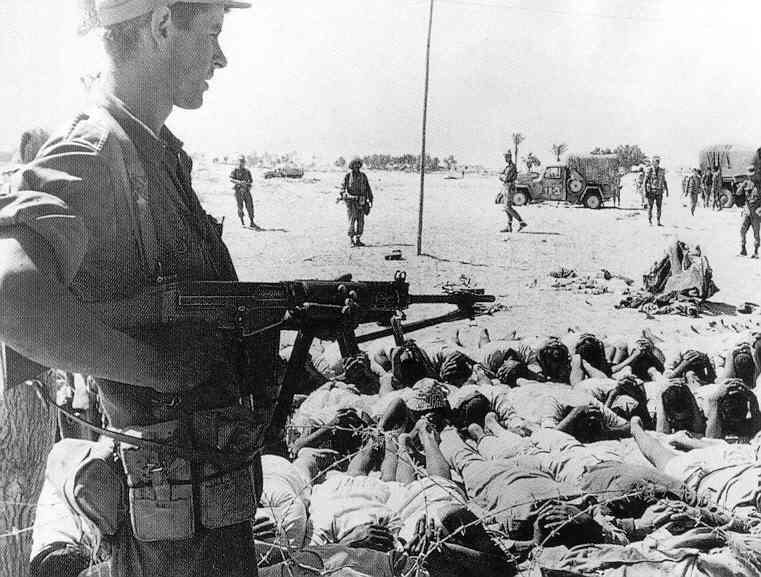
Israeli soldier guarding
Egyptian captives taken in the Gaza strip – June 1967
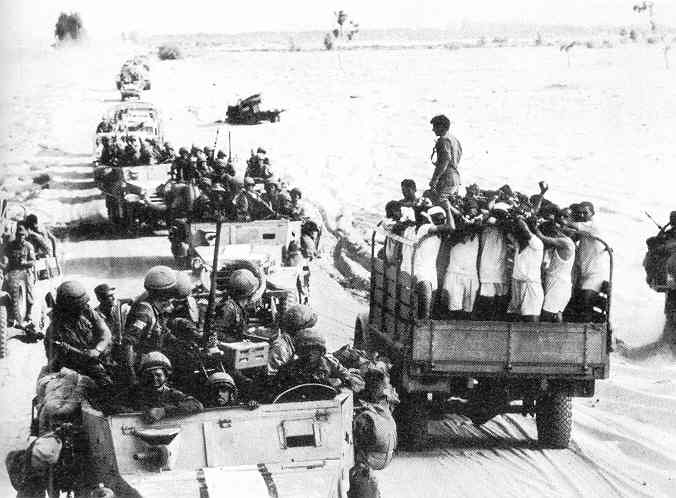
Israeli soldiers advancing
toward the front; Egyptian prisoners being brought to the rear
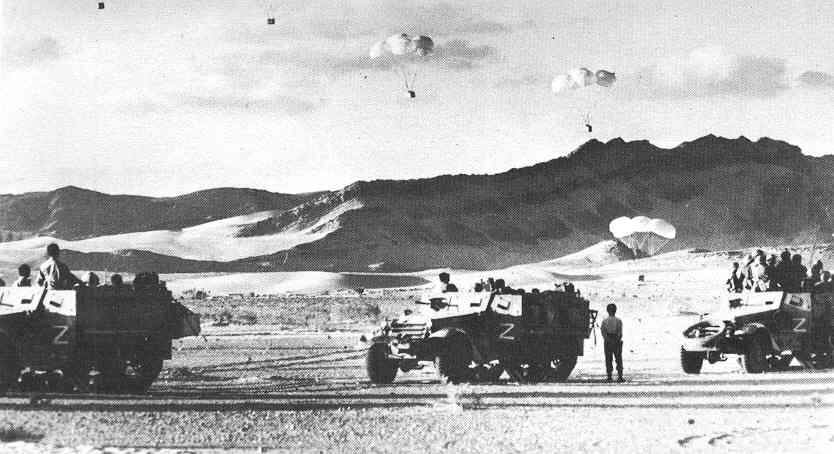
Supplies being dropped to
Israeli troops in the Sinai Desert on the third day of the war – June
1967
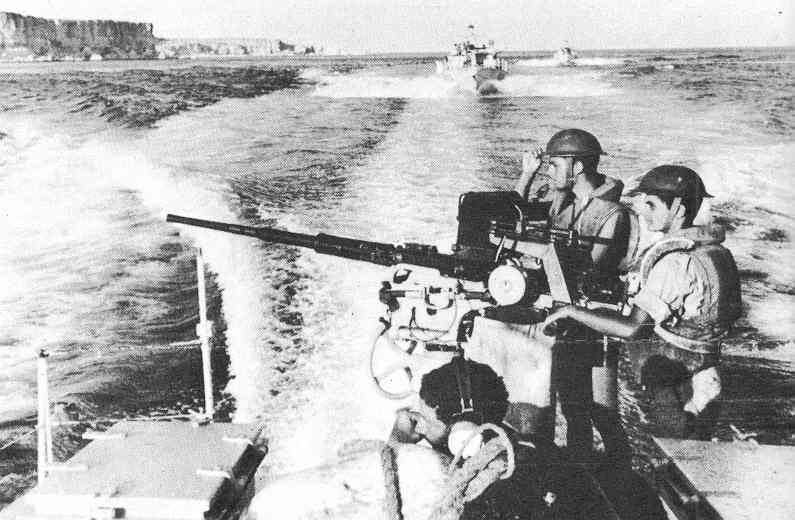
An Israeli torpedo boat patrolling
near the captured Sharm el Sheik fortress –
ending the blockade of the
Israeli port of Aqaba
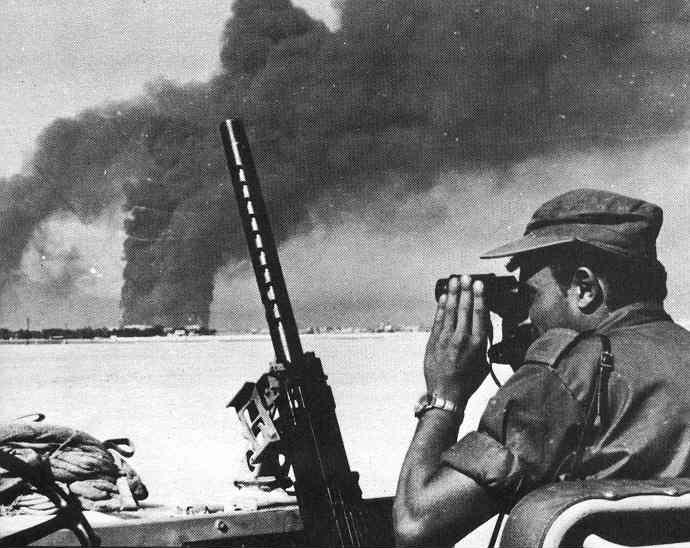
An Israeli soldier observing
the burning of an Egyptian oil refinery across the Suez Canal
Foolishly King Hussein of
Jordan decided to make a show of support for Nasser.
That was a huge mistake, the Israeli air force quickly destroying
the Jordanian air force.
Syria also jumped in against Israel, suffering the same quick
destruction.
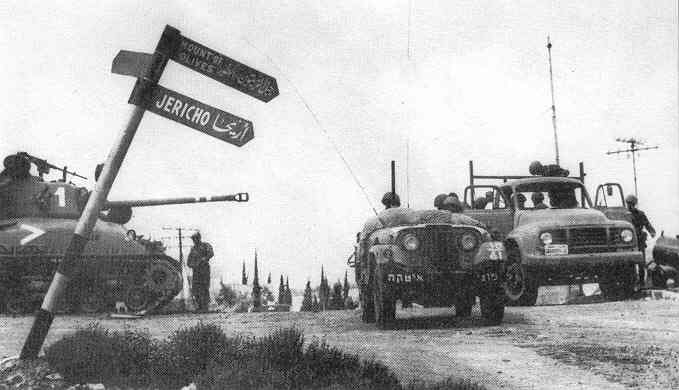
The Israelis sweep quickly
through the West Bank region
against the Jordanians – June 1967
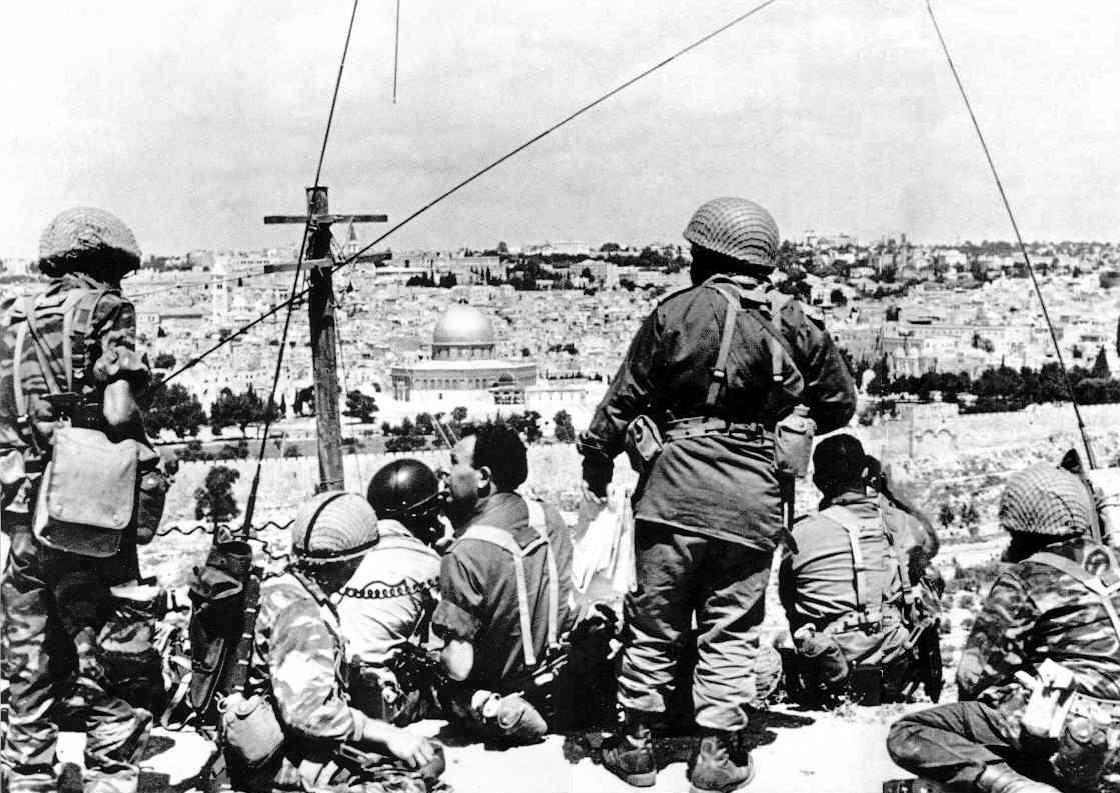
Israeli soldiers planning
their moves into East Jerusalem – June 1967
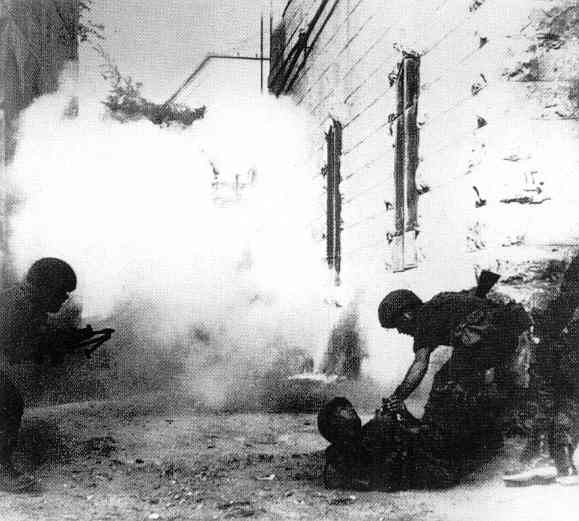
Israeli troops involved in
a street battle for East Jerusalem – June 1967
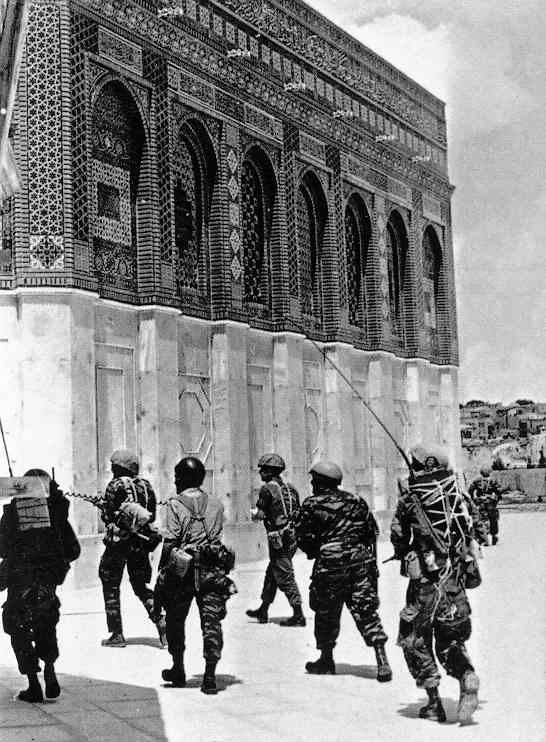
Israeli troops taking control of the
Al-Aqsa Mosque on the Temple
mount in Jerusalem
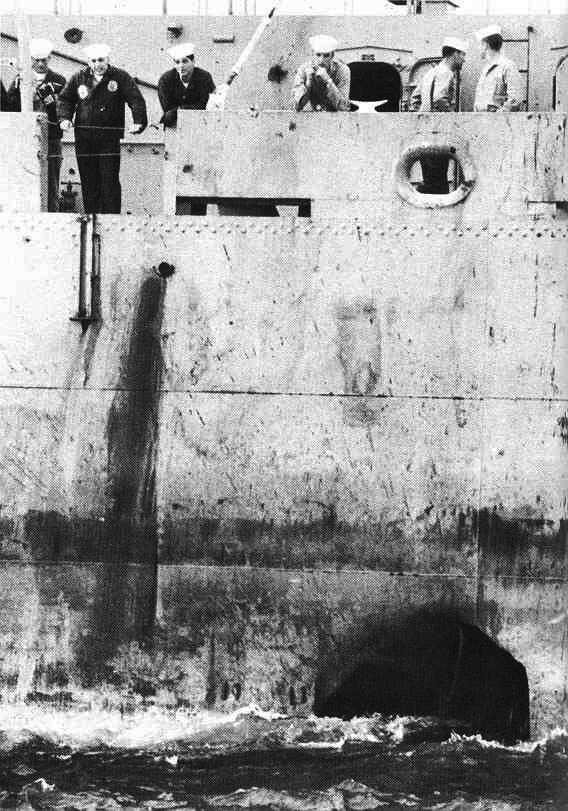
The American monitoring ship
USS Liberty holed off the Egyptian coast by an Israeli torpedo
– an unexplained Israeli action
that caused 100 US casualties (the Israelis never
offered a convincing explanation for this attack on a well-marked American naval
vessel)
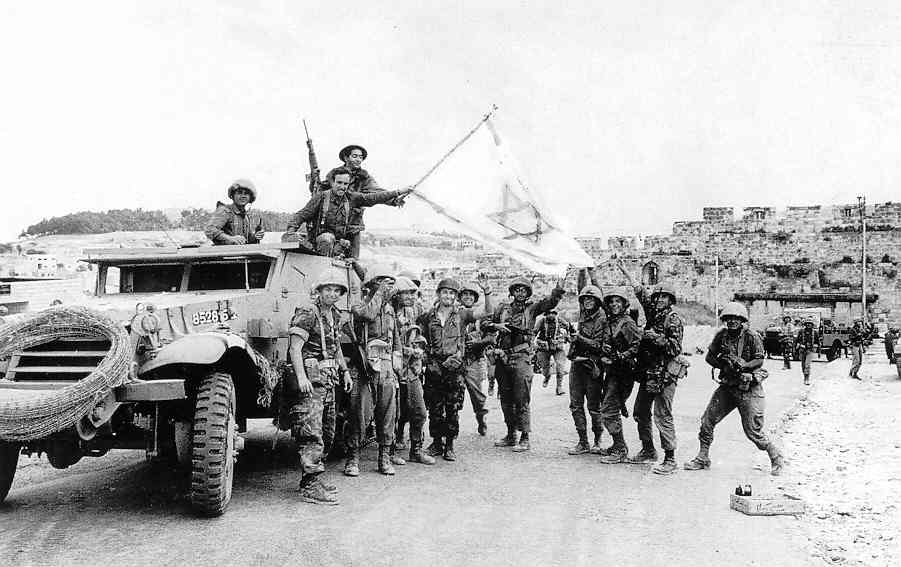
Israeli troops celebrating
victory – June 1967
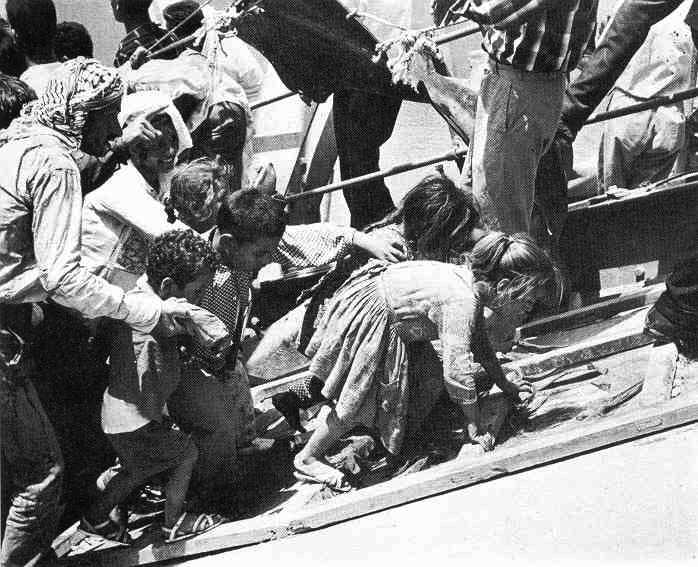
Palestinian refugees (some
of nearly 200,000) fleeing across a demolished Allenby bridge
into Jordan to escape the Israeli occupation
of the West Bank region
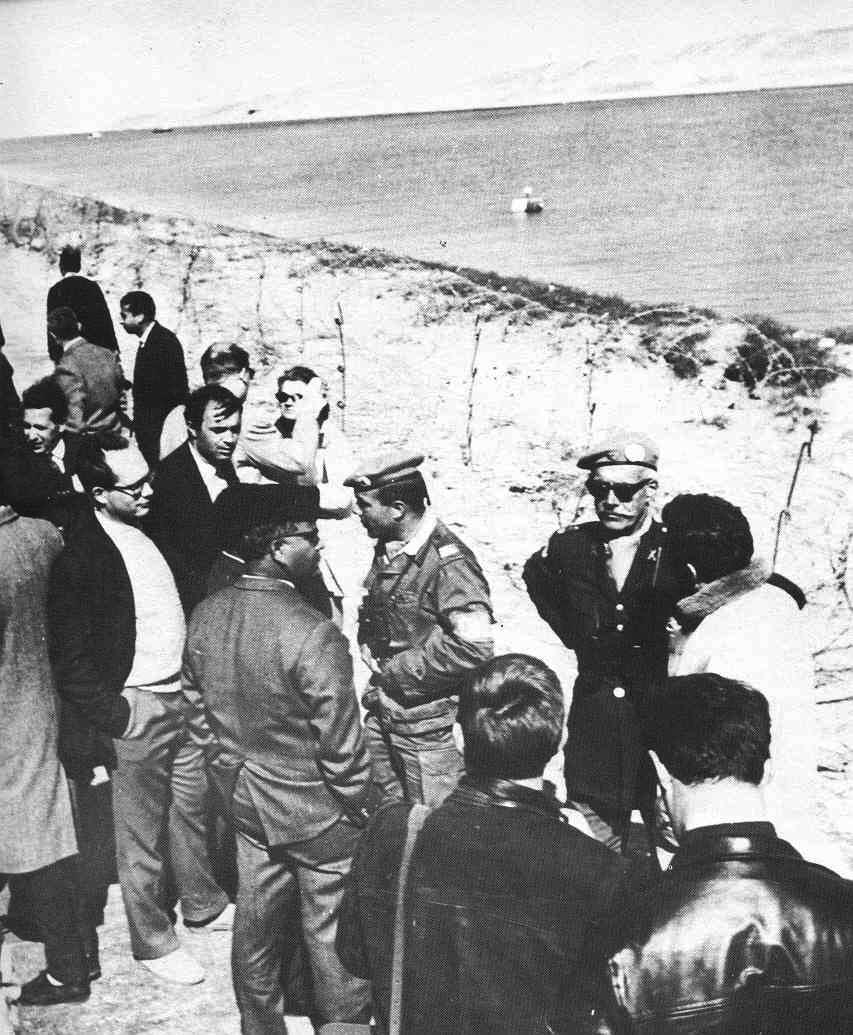
United Nations observers
at the Suez canal contemplating the consequences for world shipping
of the blockage once again
of the canal by ships scuttled at both ends (also trapping 15 ships
within
the canal)
King
Hussein of Jordan at
the UN calls for withdrawal of Israeli forces from all captured territory;
Israeli UN Ambassador Abba
Eban asserts that there will be no withdrawal without face-to-face
negotiations
And the American nation (though
not yet its government) moves solidly
into the pro-Israeli camp thanks to a lot of pro-Israeli
media slant
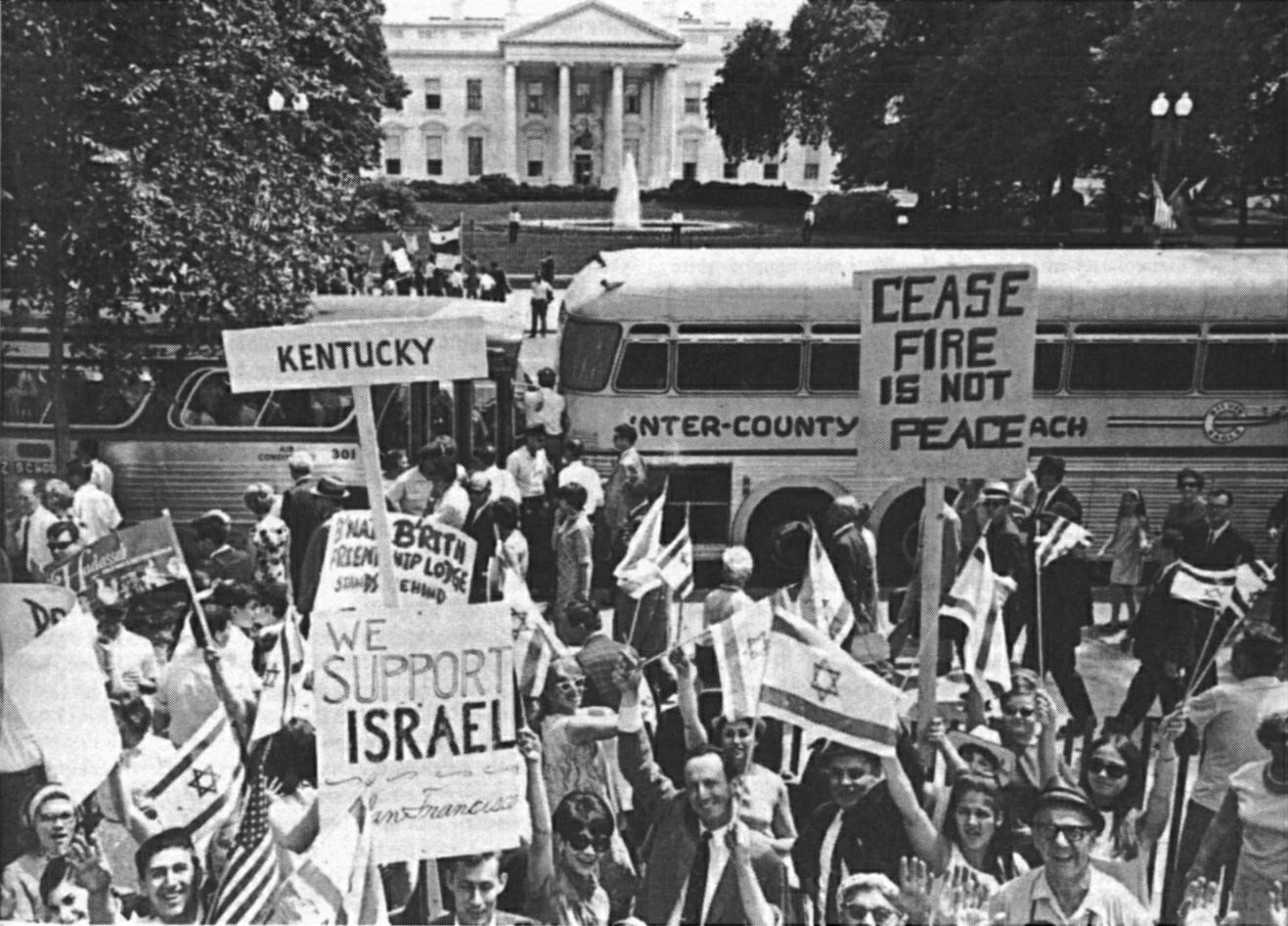
Pro-Israeli protesters gather
in front of the White House – June 1967
Behind them is a much smaller
group of pro-Arab protesters
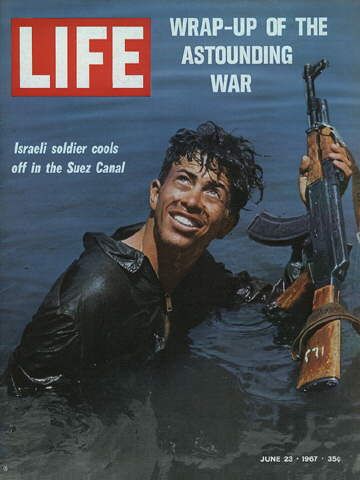
The American media followed
the war almost exclusively from the Israeli perspective ...
drawing America broadly
into an on-going pro-Israeli position in the Arab-Israeli dispute
The Israeli occupation of
the Palestinian West Bank region will now be viewed in Israel
as the completion
of Israel’s full unification. The world (including the
U.S. government)
however will not recognize these new boundaries …
and the Palestinians will continue
to struggle against this
expanded Israel in an rather futile effort to secure
their own national
homeland
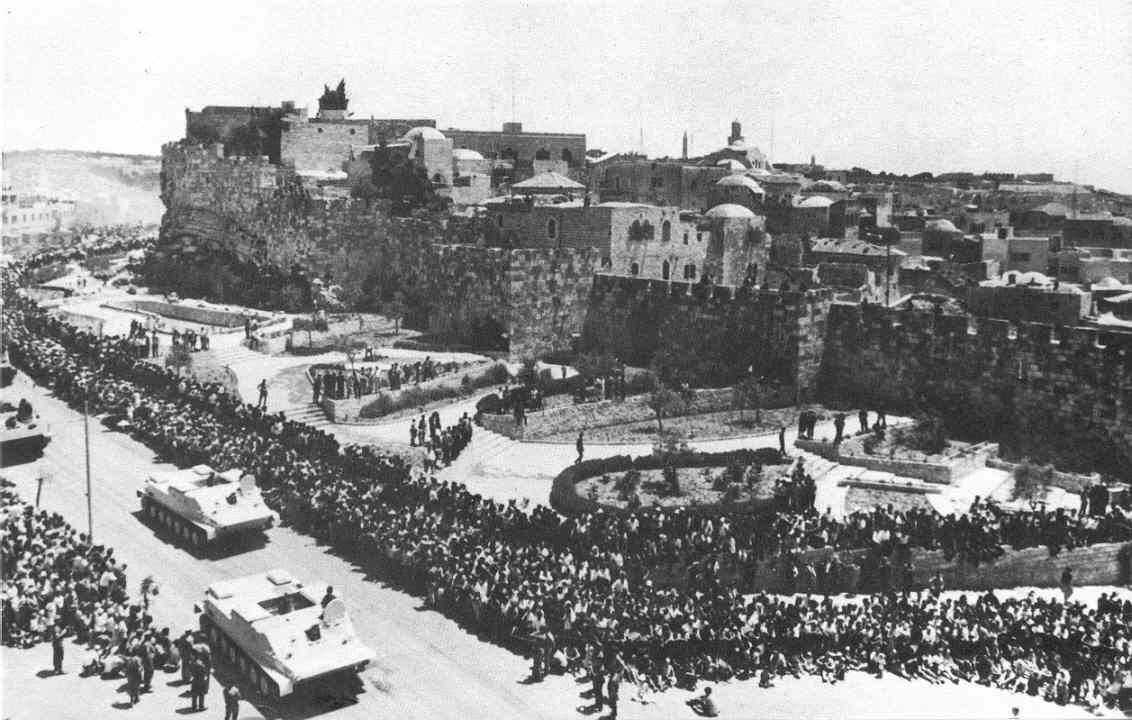
Captured Russian-built Egyptian
tanks being paraded through a "unified" Jerusalem
on Israel's 20th Anniversary – May 2, 1968
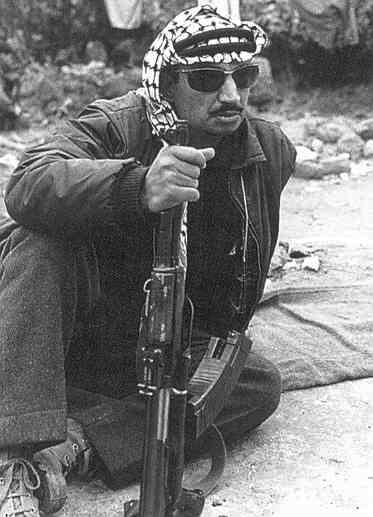
PLO chairman Yasir Arafat – 1968
He and his organization
will be portrayed in the American media and popular culture as a
war criminal for his actions in promoting
and defending militarily the Palestinian cause


|
THE "PRAGUE SPRING" – JANUARY-AUGUST
1968
|

|
|
|
The "Prague Spring" and the Czechoslovakian Crisis of 1968
The next year (1968), saw the hope of a new
freedom behind the Soviet Iron Curtain get snuffed out. Again, America
was so distracted elsewhere (not only Vietnam this time but also the
domestic crisis hitting America itself) that it could offer no support
for those in Czechoslovakia that were trying to restore the country to
some semblance of personal freedom.
Actually, the Czech Communist Party
leader Alexander Dubček was himself responsible for a new effort to
open up Czech society to popular reform. The Czech economy, rather
Western in its industrial nature before the Communist takeover in 1948,
had not responded well to the Socialist economics of the Soviet world
(of course not!) and the Czech economy was doing very poorly, even in
comparison to the other Soviet satellite countries of East Europe. Thus
Dubček's liberalization of Czech society was intended largely to be of
an economic nature. But liberal economics based mostly on a market
economy, or "capitalism" are heavily dependent on a truly free or
liberal society – that is, a society based on the West's
Judeo-Christian culture. Capitalism and a market economy depend
entirely on the personal interests and actions (thus sovereignty or
independence) of the little people, the consumers – and not on the
political interests and actions of the state and its officers. The
latter economic system (designed and controlled by the state) is
properly termed Socialism. And how Dubček was therefore going to create
his new "Socialism with a human face" was highly problematic.
The Soviet authorities in Moscow were not
at all pleased by what was going on in Czechoslovakia. Such reforms, if
not contained or even curtailed, could lead to Soviet troubles all
through the Soviet Empire in Eastern Europe. The Soviets tried to
convince Dubček to back down on his programs. But Dubček seemed
determined to stand with his new program of economic liberalization.
Consequently in August the frustrated
Soviet leader Leonid Brezhnev issued his "Brezhnev Doctrine,"
announcing that Russia was required to take action whenever
"anti-social" forces such as capitalism threatened the world of
Socialism, and called on the nations of the Russian-dominated Warsaw
Pact (the Soviet counterpart to NATO) to invade Czechoslovakia and end
the reforms.
Thus on the night of August 20-21 (1968)
hundreds of thousands (rumored to be as many as half a million) troops
and 1200 tanks of Russia, Bulgaria, Poland and Hungary descended on
Czechoslovakia, catching the Czechs completely off guard. Dubček asked
his people not to resist, though there were minor instances of
rebellion here and there across the country.
There was an international outcry across
the world, surprisingly coming even from Mao's Communist China, which
also denounced strongly the Soviet actions in Czechoslovakia. America,
along with a number of other countries, co-sponsored a U.N. inquiry
into the event. But otherwise Johnson's America did nothing of note
diplomatically to help the Czechs. Eventually, with the light of
freedom snuffed out in Czechoslovakia, the world moved on to other issues.
|
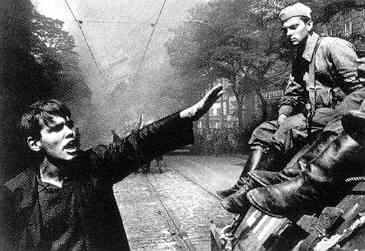
A Czech youth challenging
an invading Soviet tank crew
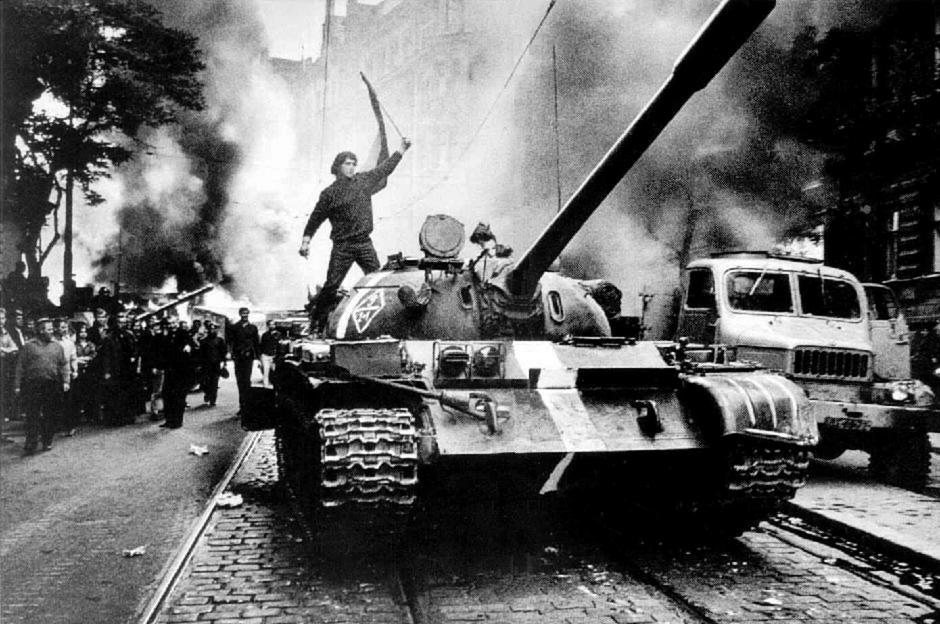
The end of the "Prague Spring" – August 20-21, 1968
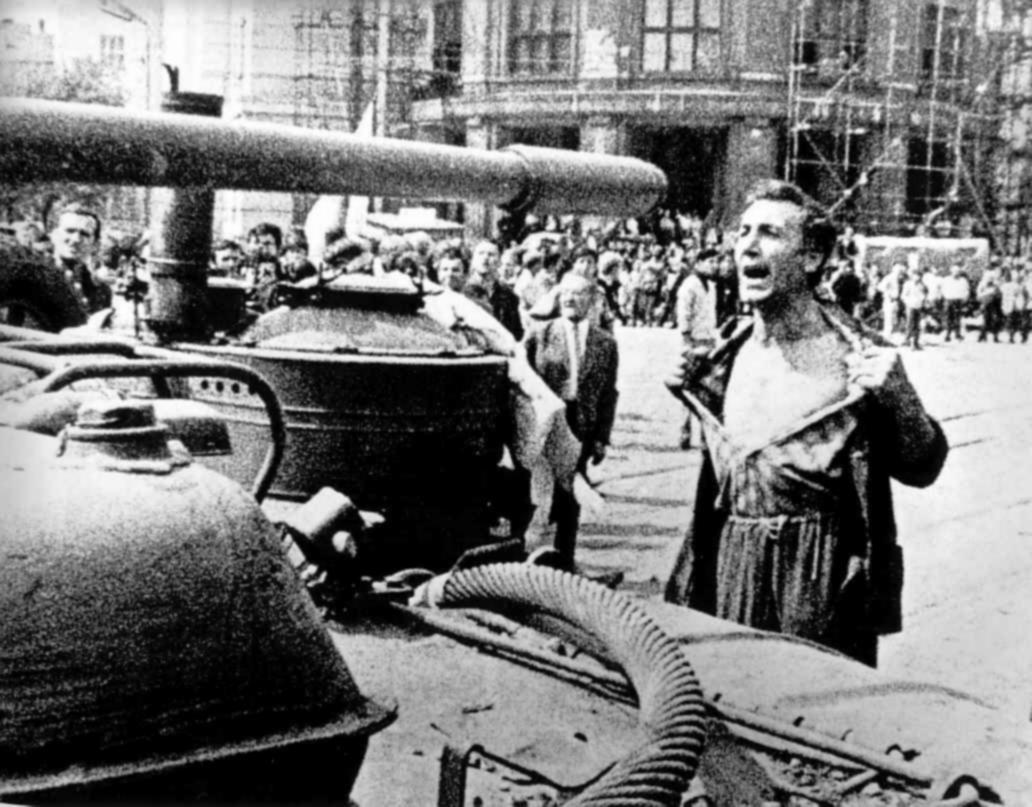
The forceful end of the "Prague
Spring" – August 21, 1968
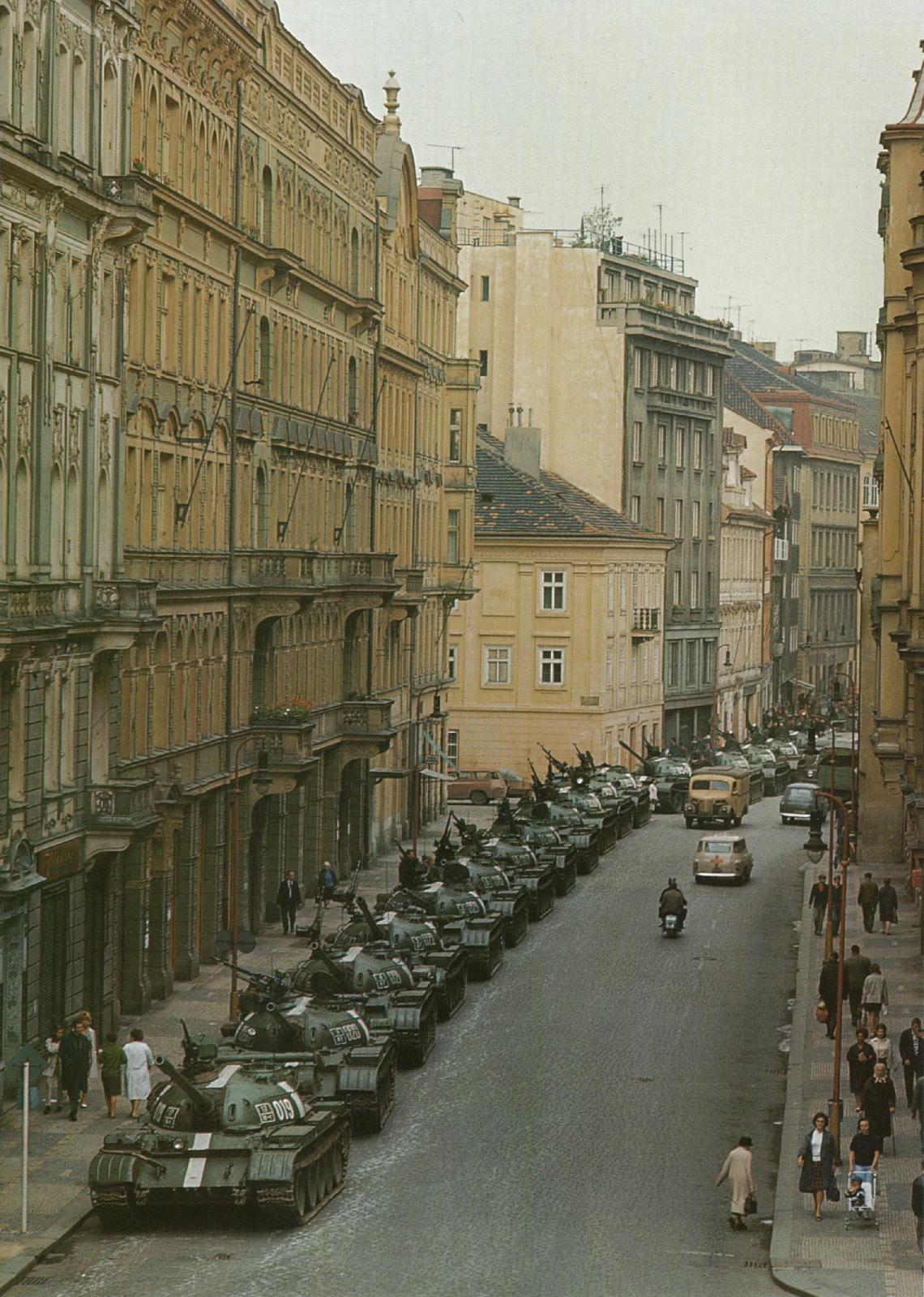
Soviet tanks parked in the
streets of Prague – 1968

 |
MAO ATTEMPTS TO REIGNITE
CHINA'S SPIRIT OF "REVOLUTION"
|
|
|
|
Mao's "Great Leap Forward" in China (1958-1961)
Ever since Mao's peasant army had taken over China
in early 1949, America had pretty much left China to work out its
destiny on its own. Chinese involvement in the Korean War several years
later had for a brief time brought China into the world of America's
deep anti-Communist concern (the McCarthy Era). But again, by the
mid-1950s America decided that it had better things to do elsewhere,
such as defend the huge island of Taiwan where America's former Chinese
ally Chiang and his Chinese Nationalists had taken refuge. Thus the
Chinese mainland was left to Mao by Americans to do there whatever he
wanted.
But as the 1950s rolled along, Mao began
to grow ever more resentful of the way the old Chinese Communist
regulars had taken over the running of "his" Communist Party. His
colleagues expressed their gratitude to Mao for how he and his peasant
army had brought them to power. But they were true Marxists, and true
Marxist Communism was supposed to be built on industrial workers and
industrial society, not on peasants and their rural world. Mao would no
longer be needed to direct the future of Communism in China. That
belonged to the "true Communists."
To counter these more orthodox
Communists, Mao then came up with the idea of creating an industrial
China his own way, not by going through some kind of capitalist stage
of industrial development (the Marxist historical precondition to
fomenting true Communist revolution) but by creating something of a
peasant-based industrial revolution, just as he had built up a
peasant-based army to bring Communism to success in China.
His idea was two-fold (actually very
similar to Stalin's idea): as part of a new 5-year plan, to
collectivize all individual farms (even the small independent peasant
farms) so that the state now was the official owner of all property in
China. The farmers would be re-educated to their new role as "state
workers" and be fed and cared for by their employer, the Communist
state. Further, the Chinese would spend part of their time in the
fields, but also part of their time at work on small iron foundries set
up in the villages, presumably producing quantities of iron that would
surpass even the production levels of Britain, thus ensuring China the
status as a great industrial power. And all of this was to be done once
again by following the quite unorthodox lead of Mao
The Party was somehow won over. Thus in 1958 began "The Great Leap Forward."
But Mao's pet project turned out to be a
mind-boggling disaster for China. Not only did it reverse economic
growth for the country (anyway, the crude iron produced in these
village foundries was of such low grade that it was totally useless for
industrial purposes) but it resulted in millions of deaths, the very
best estimates running from 22 million to 42 million deaths. No one
quite knows the numbers, they were so large, and statistics were highly
unreliable.
Starvation was the biggest single cause,
as workers were taken away from the fields to work at the village
foundries, leaving the fields untended. Exhaustion and sheer depression
were also big killers as farmers lost their fields to the state and
were themselves turned into state laborers. Resistance and
"reeducation" to this Maoist ideal was another killer.
The Program was due to continue until
1963, but by 1961 it was obvious to all that this effort to force-march
the agrarian world of China toward productive greatness had become a
nightmare. The program was put aside – as was Mao once again.
The Chinese "Cultural Revolution" of the mid-to-late-1960s
But Mao was no quitter – and terribly
afraid of being removed from power, as the Soviets had just done in
1964 with Khrushchev because of his numerous policy failures. Thus in
1966 Mao came forward again with a new program designed to put him
front and center once more in the Chinese world: The "Chinese Cultural
Revolution."
First, in the name of removing
"revisionist thinking" within the Party's leadership, Mao purged a
number of key Chinese leaders (1965), establishing the notion that
there was a large "anti-party" group in China that wanted to destroy
the Great Chinese Revolution. Then Mao (supported by his actress wife,
Jiang Qing) took the campaign to the larger society, to the
universities and schools where such anti-party individuals supposedly
abounded. He then turned to China's youth, asking them to help him
purge the country of such anti-revolutionary elements and to help him
establish "right-thinking" within Chinese society. To this end he had
published a Little Red Book containing numerous Confucius-like quotes
that all revolutionary-minded individuals (especially the youth) were
expected to memorize and recite at every opportunity, quotes which came
directly from the Great Leader himself, Chairman Mao.
The streets of the cities now were lined
up with huge posters of Mao, and filled with bands of youth – the new
"Red Guard" – on a marching and singing crusade to bring correct
thought to China. Universities and schools closed down, as did local
town halls and industries, as bands of Red Guard youth dragged older
officials in front of their tribunals and ordered humiliating
punishment on their "anti-party" elders.
Once again, Mao succeeded in completely
shutting down Chinese society with one of his "revolutionary" projects.
Industrial production ground to a halt, formal education ceased, and
social chaos reigned.
Finally, by 1968, it became apparent to even Mao himself that his
"Cultural Revolution" had gone too far (once again!) and needed to be
brought under control. To this end, in 1969 China's military under the
leadership of Marshal Lin Biao was directed to step in and restore
order in China. But this in turn shifted power towards the military in
a way that neither Mao, nor his ever-vigilant wife Jiang Qing, trusted.
Tensions within the upper circles of Chinese power rose.
Meanwhile America looked on all of this
with amazement, although, judging from the behavior of their own highly
impressionable and emotionally hyped Boomer and radical Black youth at
the same time, there was something eerily familiar about it all (such
youthful crusading was also tearing at Europe as well at the time). But
all in all, America had nothing to do or even to say about what was
going on in Mao's China. Again, America had its own in-your-face
problems to deal with at home.
|
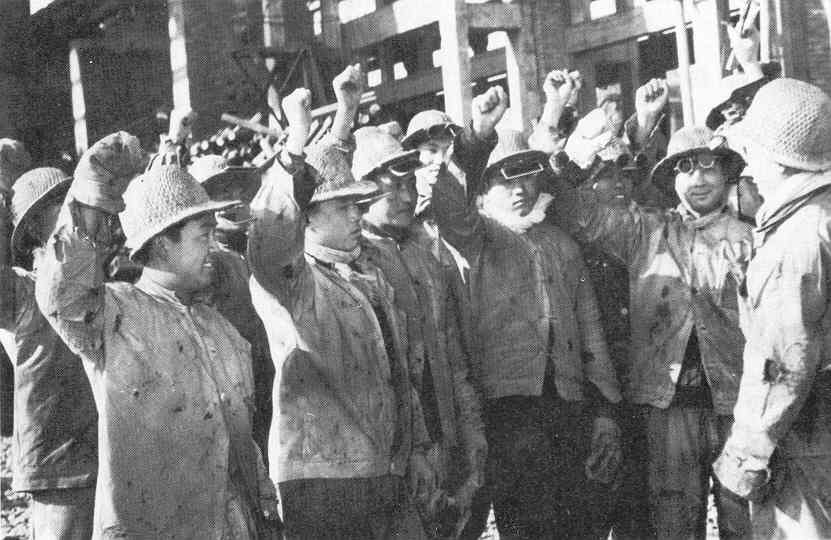
Chinese workers volunteering
to work unpaid overtime to surpass the British in steel production
late
1950s
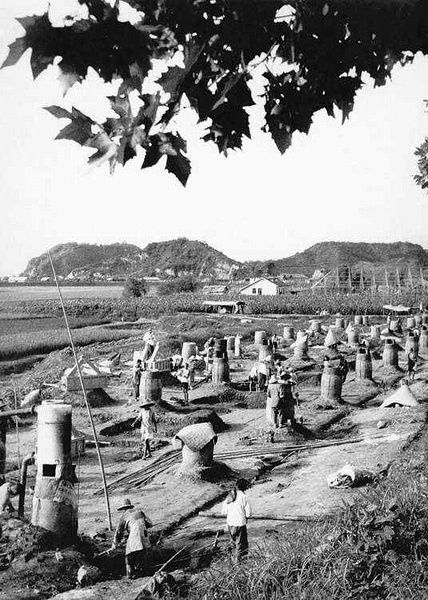
Backyard iron smelters created
during the Great Leap Forward
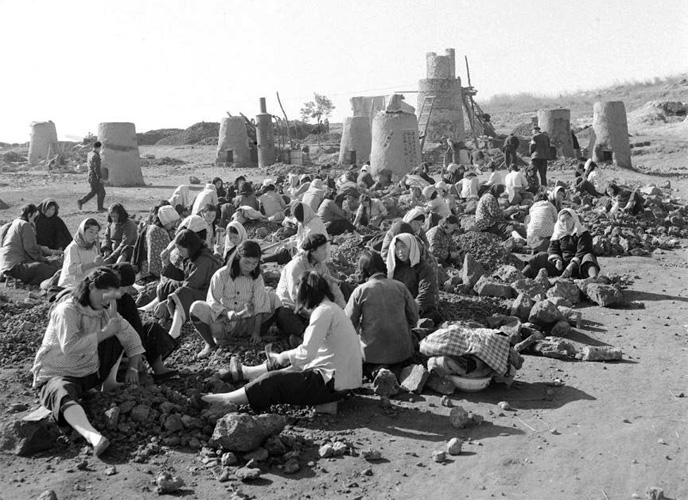
Chinese hard at work on their "back yard" smelters
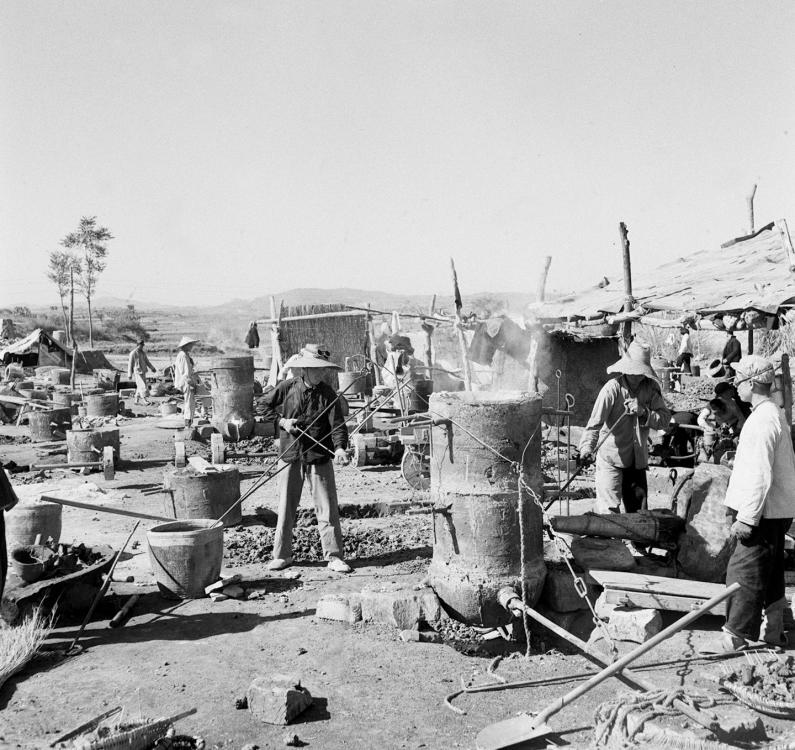
Chinese hard at work on their
"back yard" smelters
Chinadaily.com
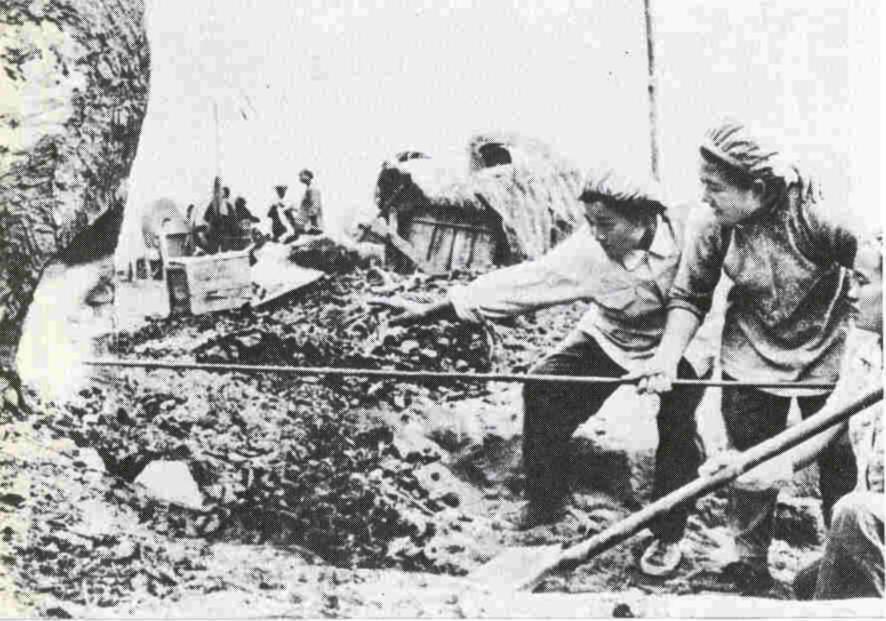
Chinese hard at work on their
'back yard' smelters
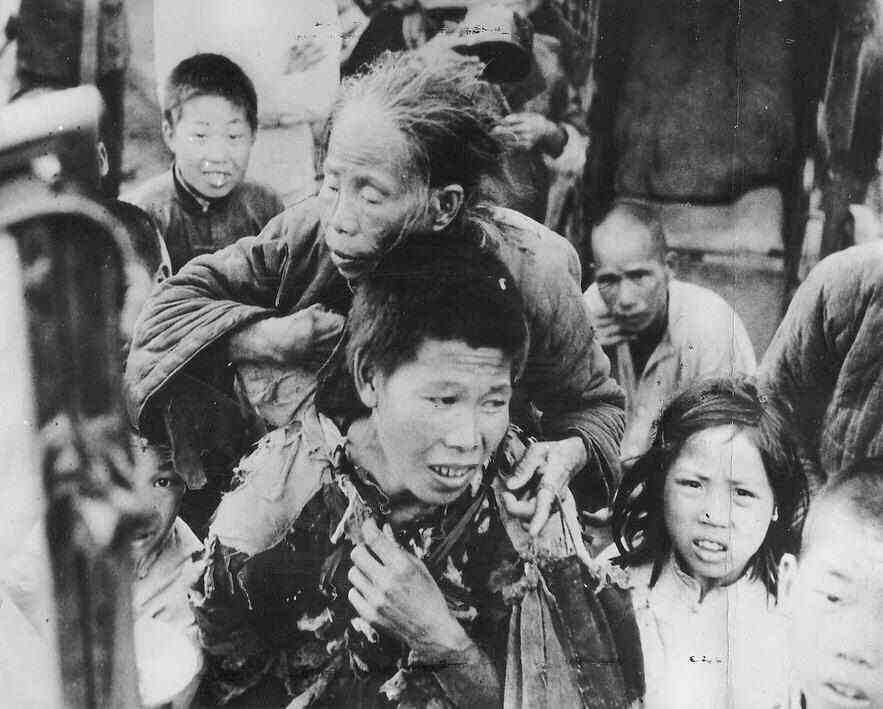
But by 1960 the problem of
hunger and mass starvation had become critical
Mao tries again: The Chinese Cultural Revolution of the mid-late 1960s
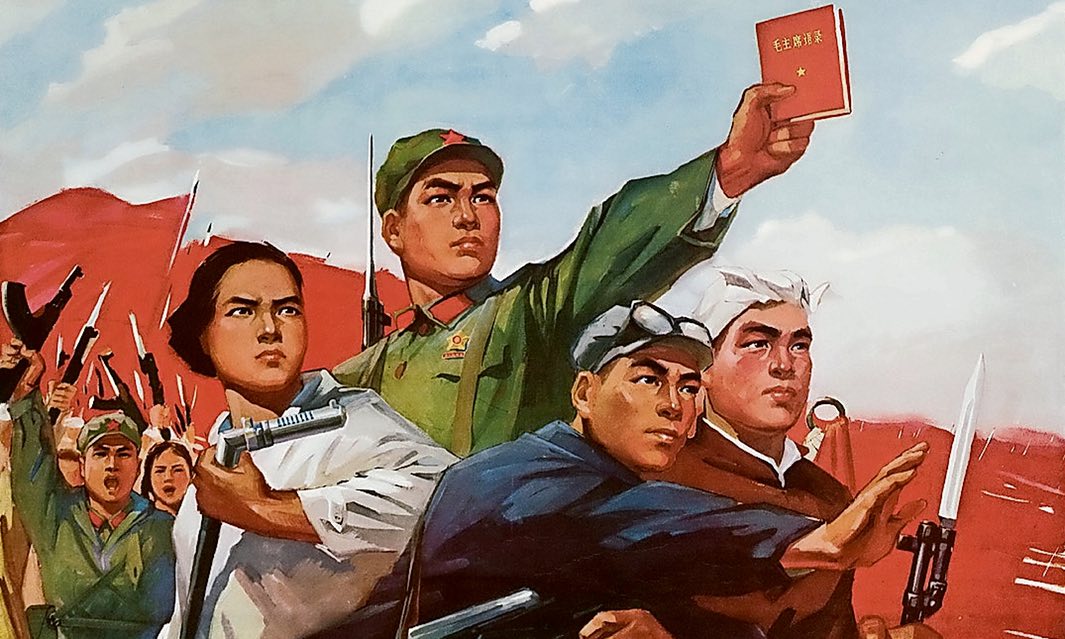
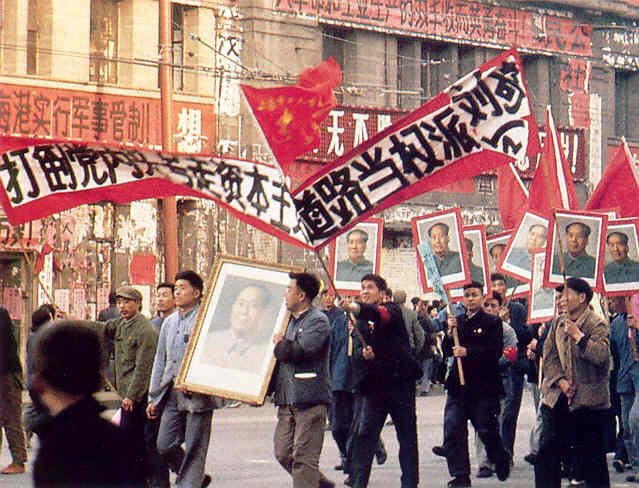
Chinese Red Guard – 1966
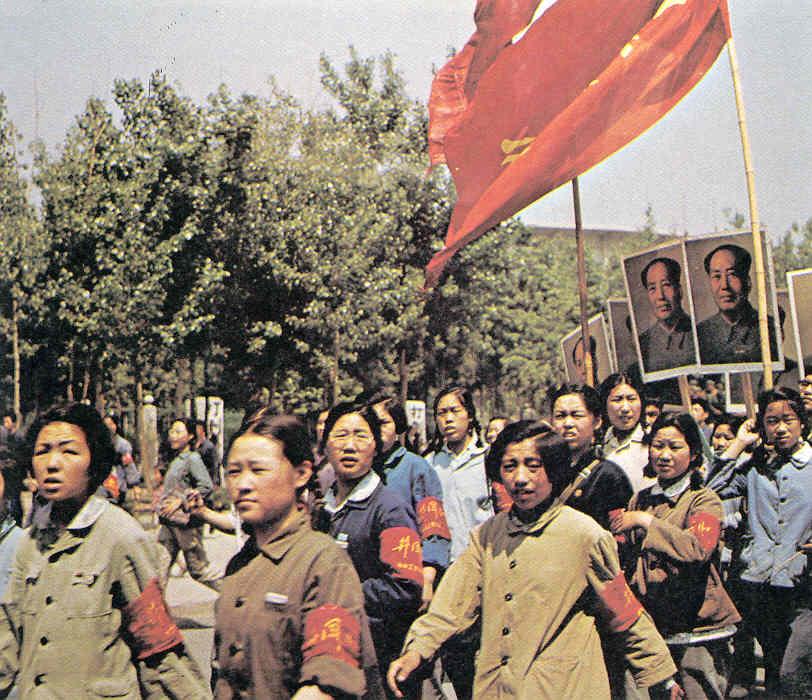
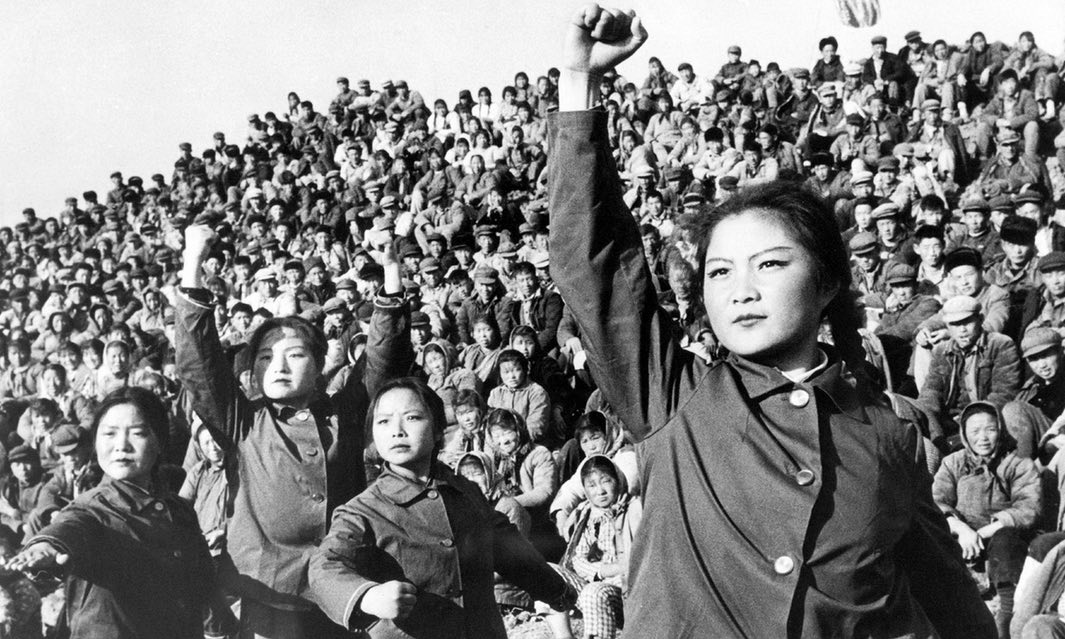
Youthful Chinese Red Guards – devoted followers of Chairman Mao
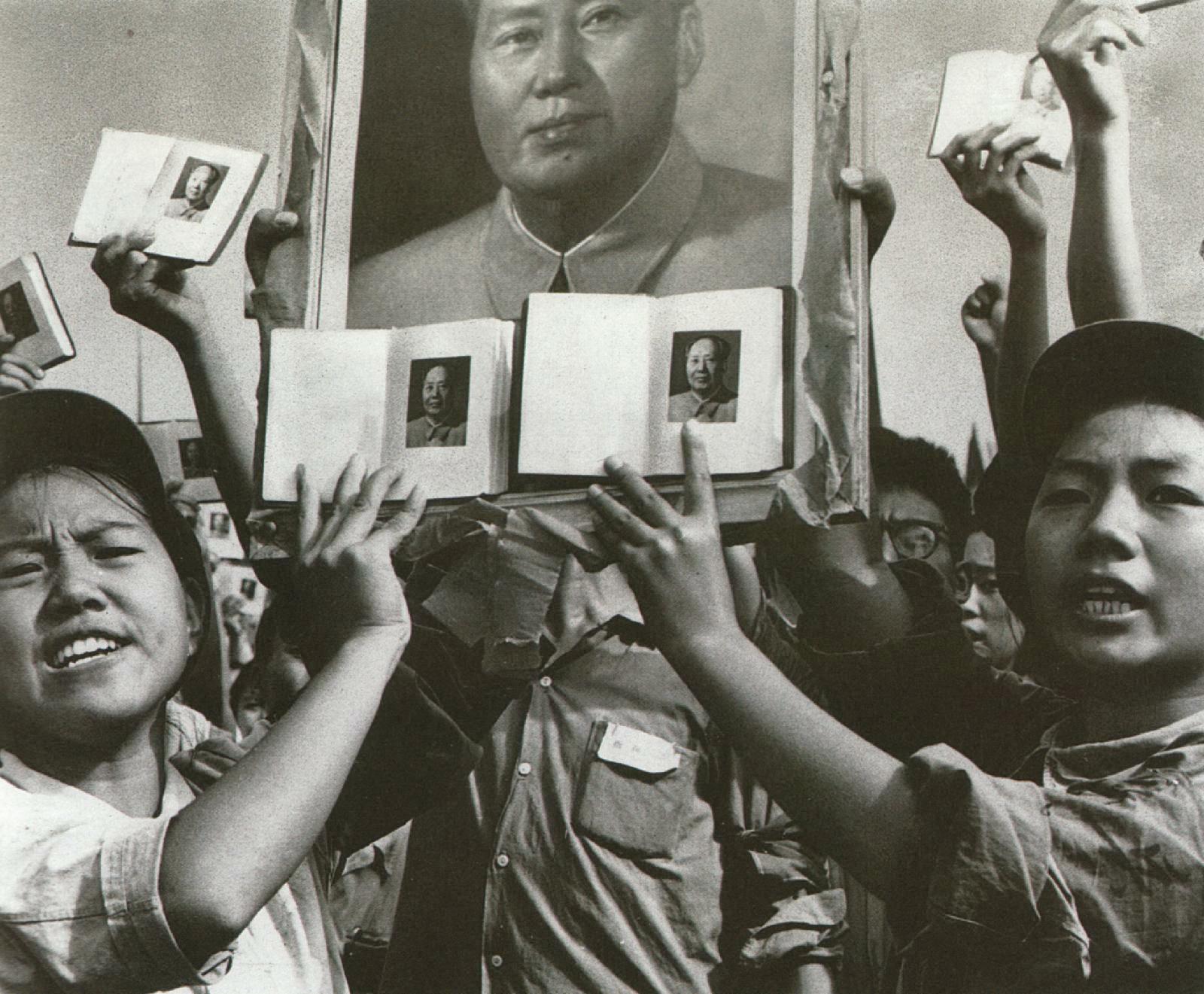
Mao's Little Red Book – 1966
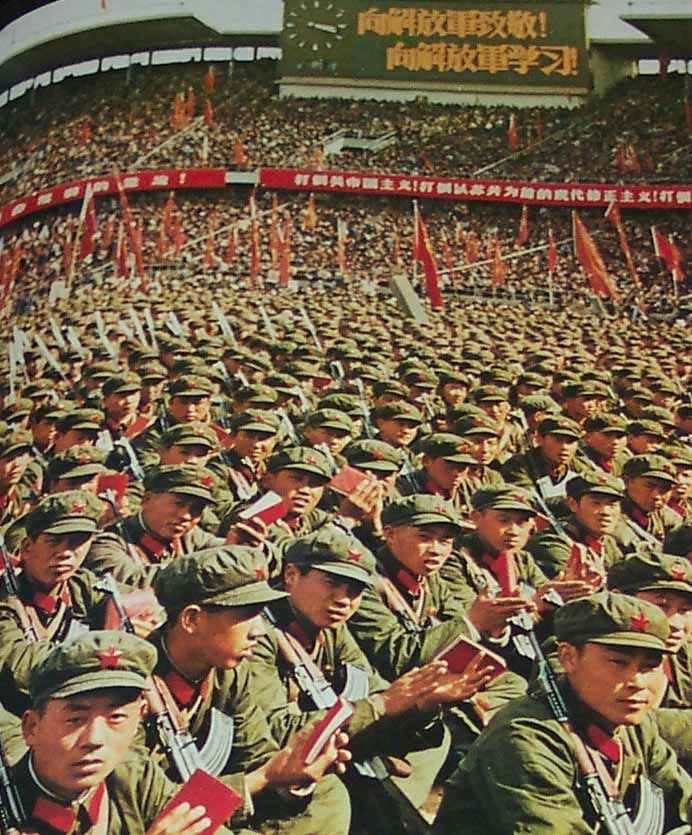
Thousands of the Chinese
Red Guard gather to study Mao's Red Book
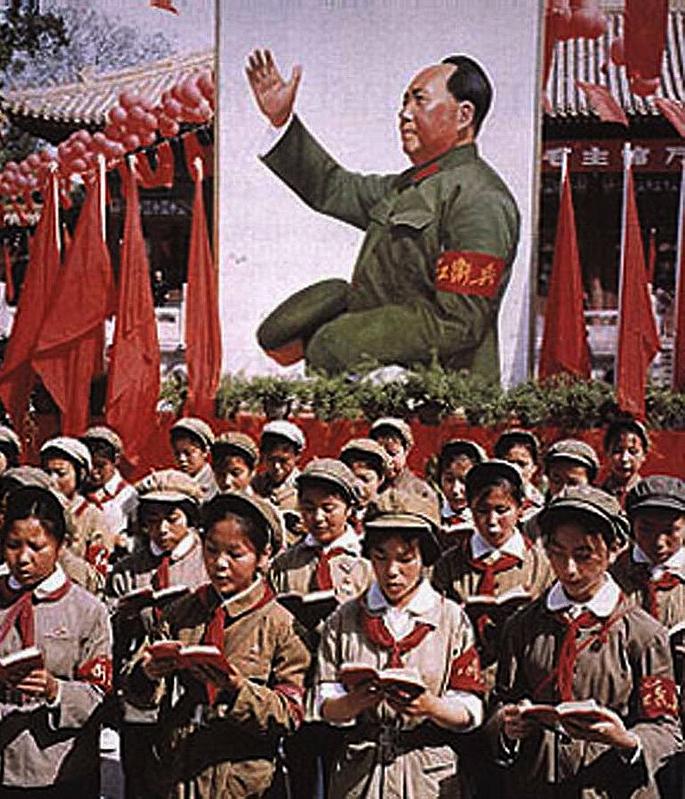
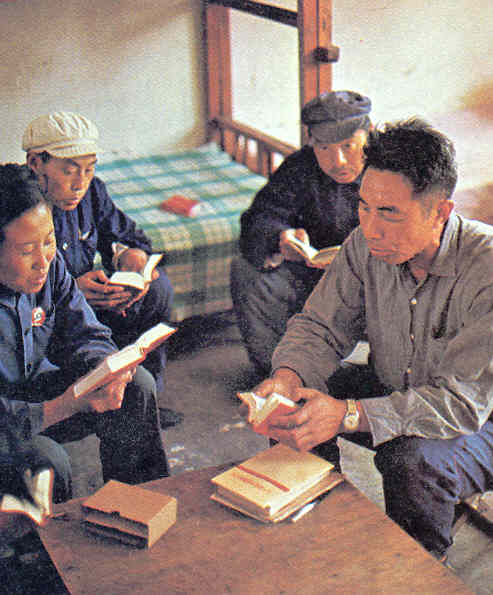
Studying Maoist
doctrine
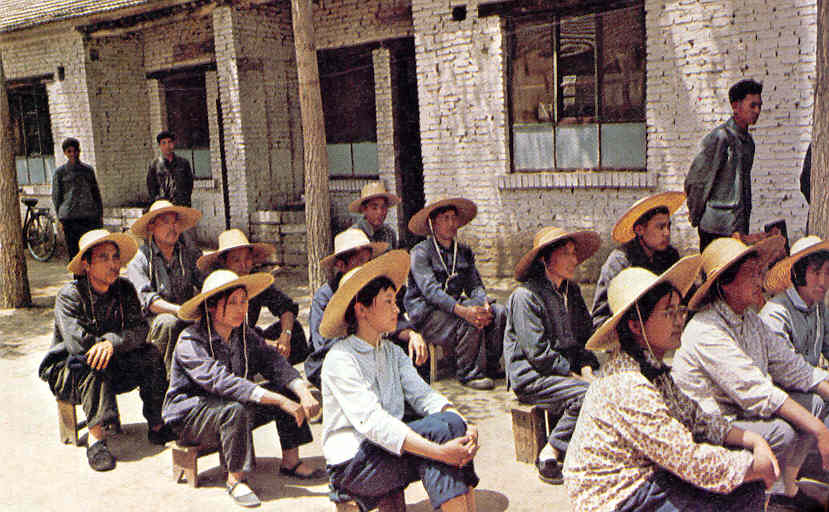
Maoist
indoctrination
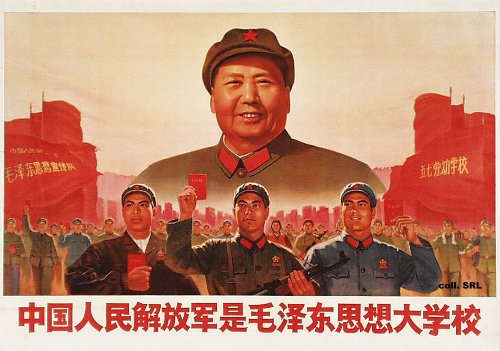
"The Chinese People's Liberation
Army is a University of Mao Zedong Thought"
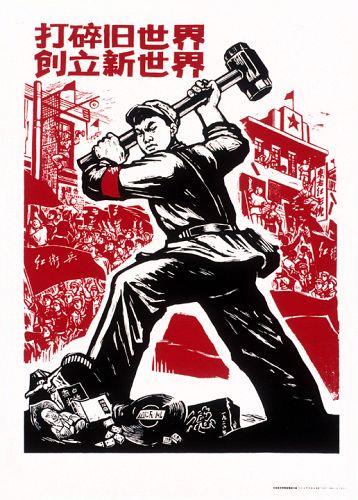
"We'll destroy old world
and build new"
A young worker crushes the
crucifix, Buddha and classical Chinese texts with his hammer – 1966
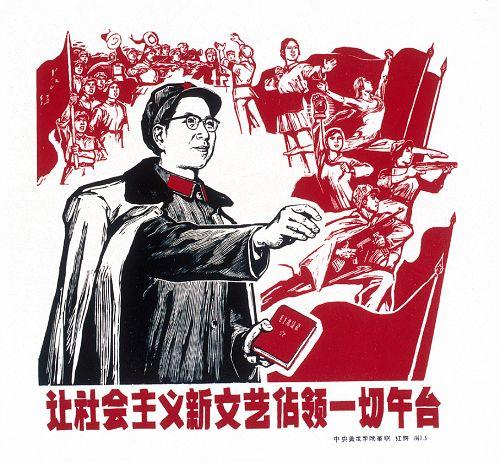
Mao's radically ideological
wife: Jiang Qing ...
"Let new Socialistic culture conquer every stage" – 1967
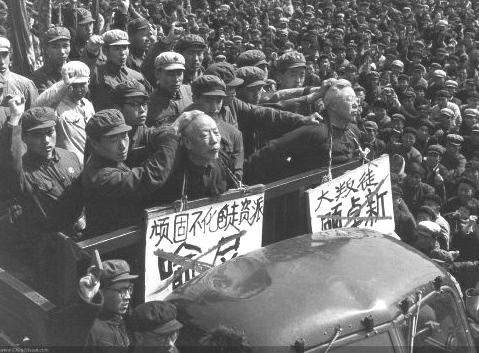
Two Chinese citizens branded
as "Capitalist Roaders" and hence subjected to physical abuse
in the public ... as part of the Maoist strategy
of "Struggle Sessions" to get Chinese who were less
than revolutionary
to struggle with their "errors." Hundreds
of thousands were required
to do this in "reeducation" (prison)
camps.
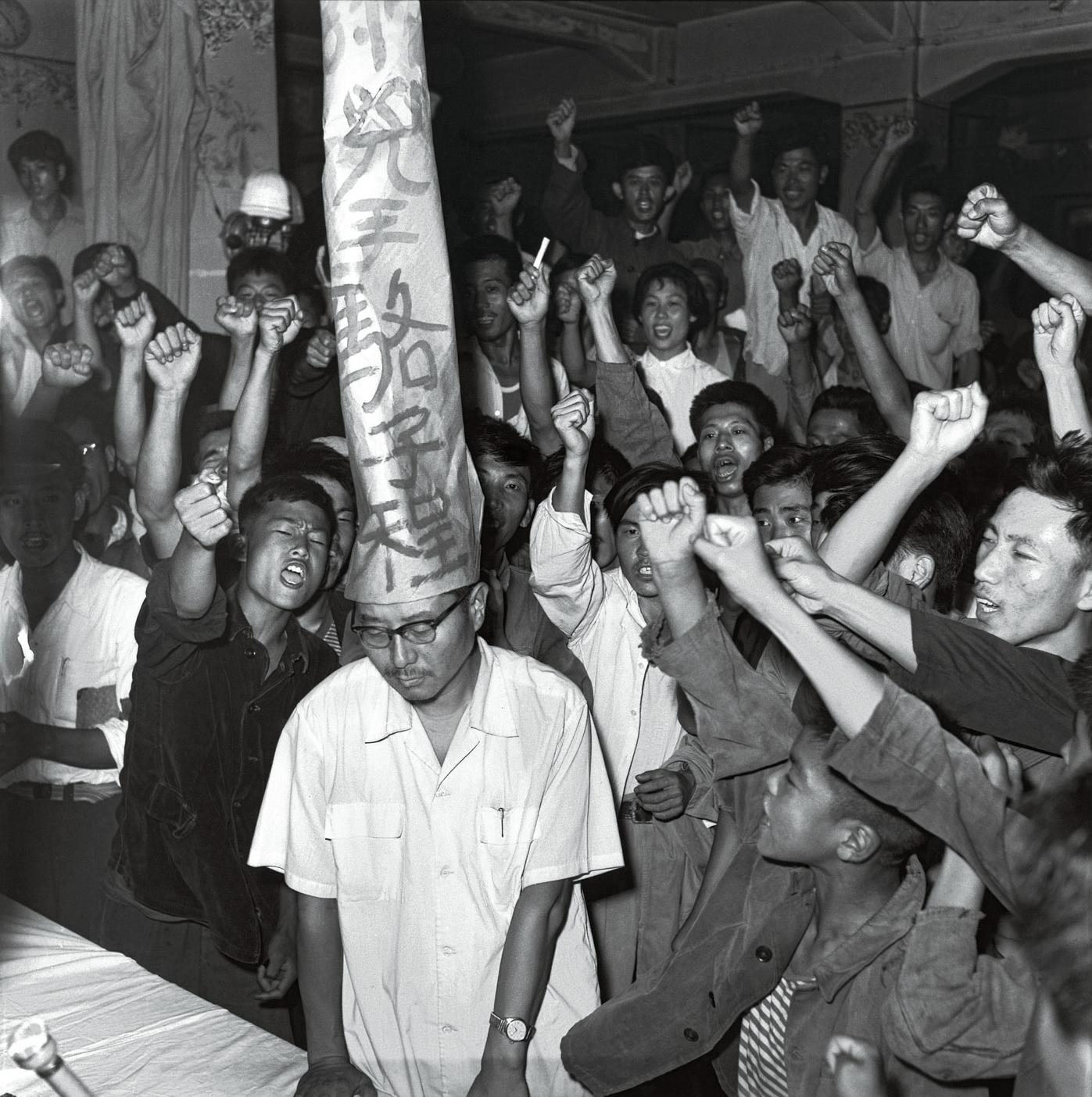
Chinese youth conducting
a “Struggle Session,” forced on an adult
(probably teacher or local
official)
In some of the worst cases
they would even be beaten to death by the overwrought youth
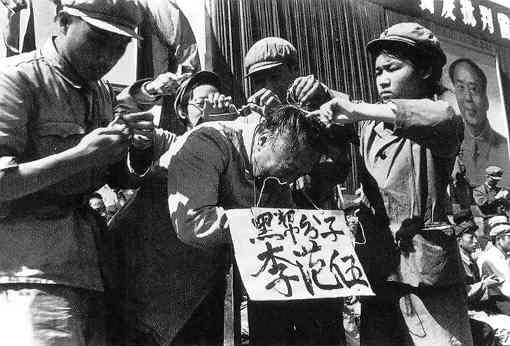
Young Maoists attacking an
older Chinaman who did not meet their measure
of proper Maoist demeanor – 1967
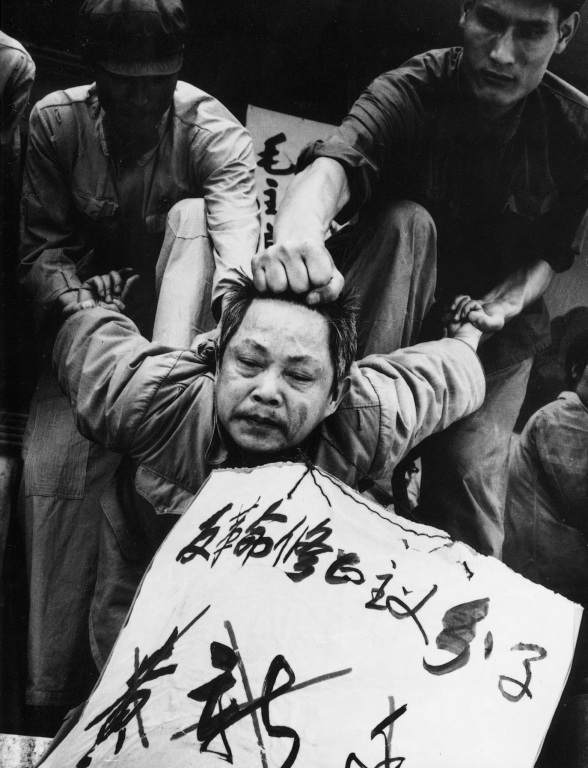
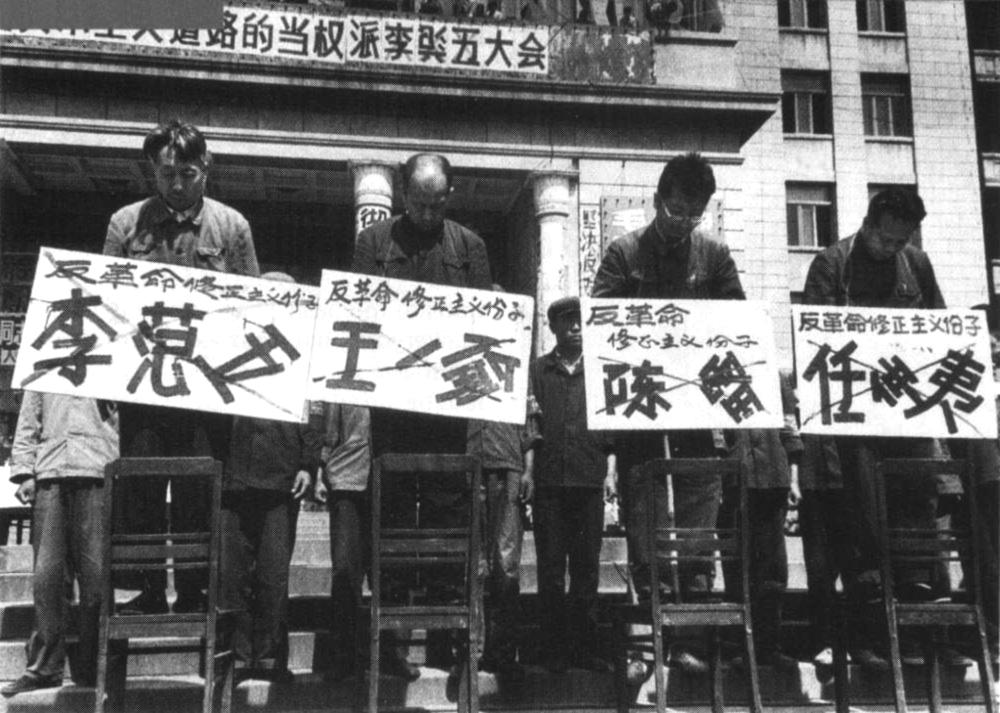
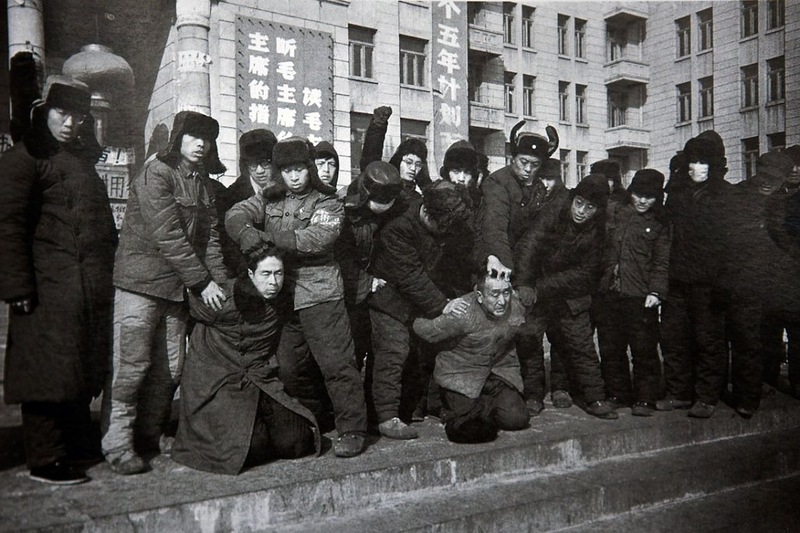
Chinese "Capitalist-Roaders"
punished by Red Guards during the Cultural Revolution
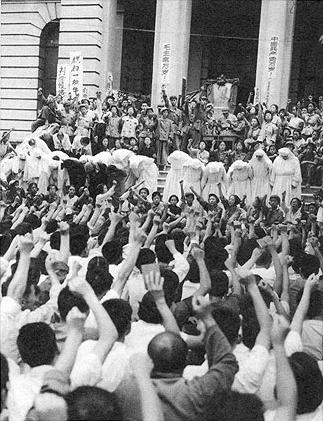
Red Guards denounce a group
of Franciscan nuns
in front of their desecrated church in late August 1966
|
The nuns were expelled from
China with great fanfare a few days later. These nuns had remained in China
after the Communist victory in 1949.
They ran an English school,
which many children from Western embassies attended. During the Cultural
Revolution their presence in China became evidence to the Red
Guards that the revolution was not thorough enough.
|
| But the real goal of the
Cultural Revolution was to swing such strong public support behind Mao
that he could get rid of all his political adversaries
within the Communist Party (anyone with a personal base of support of his own
within the party) and thus rule China as he
personally chose to do so.
The Chinese Communist leader
receiving the greatest focus of Mao's wrath was the party's next in command,
Liu Shaoqi – also President of the People's Republic of China
|
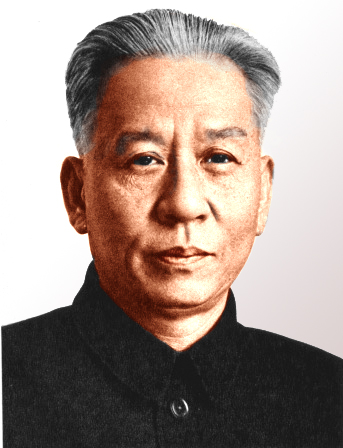
Liu Shaoqi – Chairman (President)
of the People's Republic of China (1959-1968)
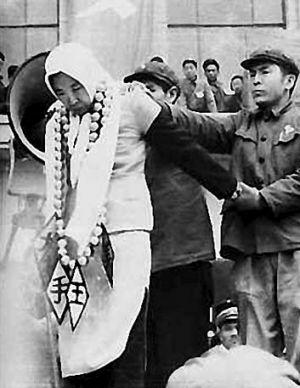
Persecution of Liu Shaoqi's wife, Wang Guangmei – 1967

 De
Gaulle attempts to set France on an independent diplomatic course
De
Gaulle attempts to set France on an independent diplomatic course
 Adenauer tries to bring Germany back to legitimacy in European affairs
Adenauer tries to bring Germany back to legitimacy in European affairs
 The
British attempt to pull out of a sense of national feebleness
The
British attempt to pull out of a sense of national feebleness
 The
changing of the guard in the Kremlin – October
1964
The
changing of the guard in the Kremlin – October
1964
 The Arab-Israeli "Six-Day War" of June 1967
The Arab-Israeli "Six-Day War" of June 1967 The "Prague Spring" – January-August 1968
The "Prague Spring" – January-August 1968
 Mao attempts to reignite China's spirit of "revolution"
Mao attempts to reignite China's spirit of "revolution"
 European
students begin their own protest movements – Spring of
1968
European
students begin their own protest movements – Spring of
1968
 The
overthrow of the Papandreou government ion Greece – April
1968
The
overthrow of the Papandreou government ion Greece – April
1968
 Spain
and Portugal remain under very conservative
governments
Spain
and Portugal remain under very conservative
governments
 Violence
between Catholics and Protestants breaks out in Northern Ireland
Violence
between Catholics and Protestants breaks out in Northern Ireland





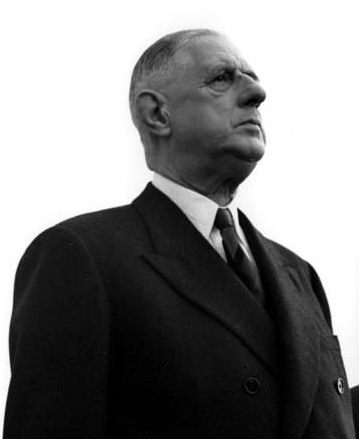
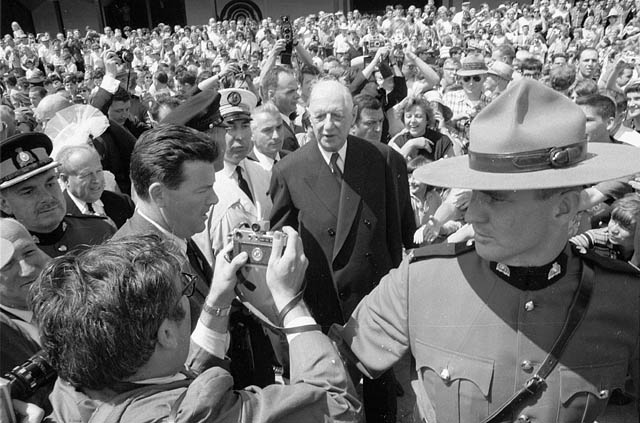
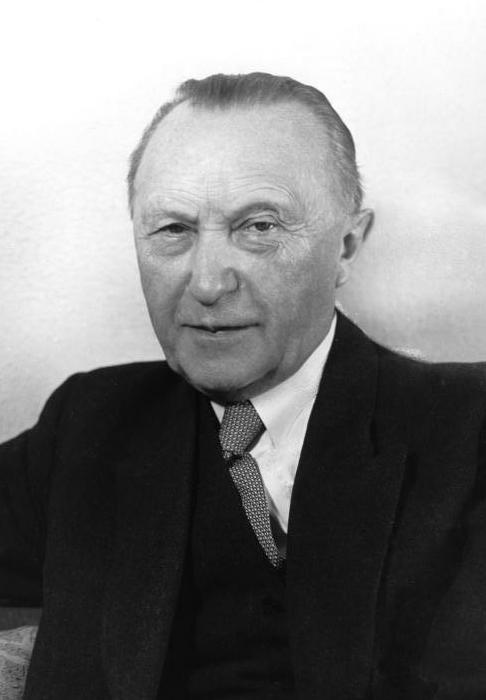
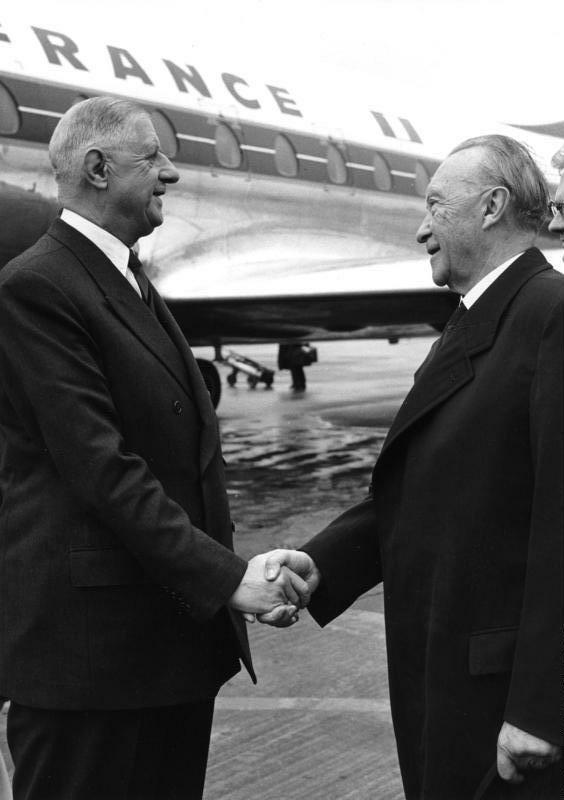
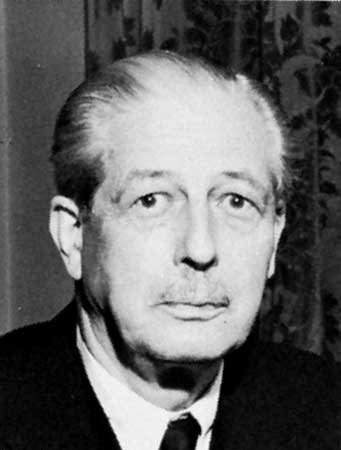
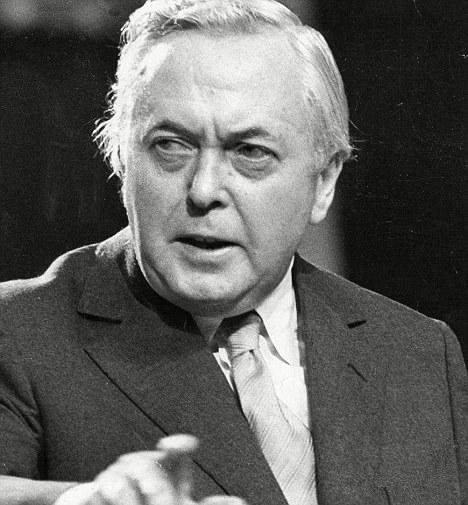
























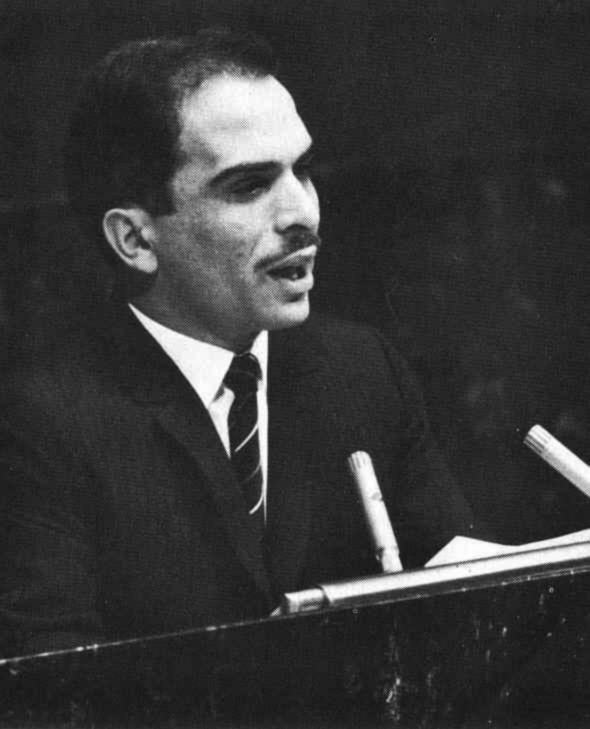
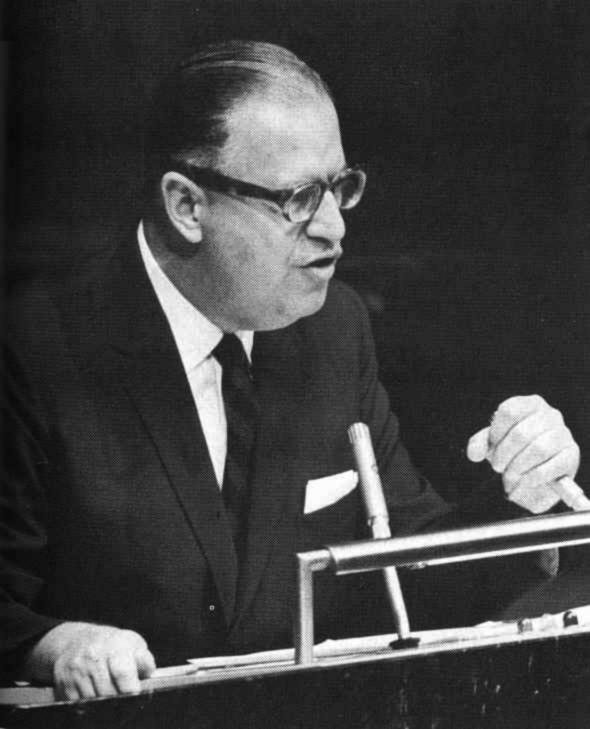



































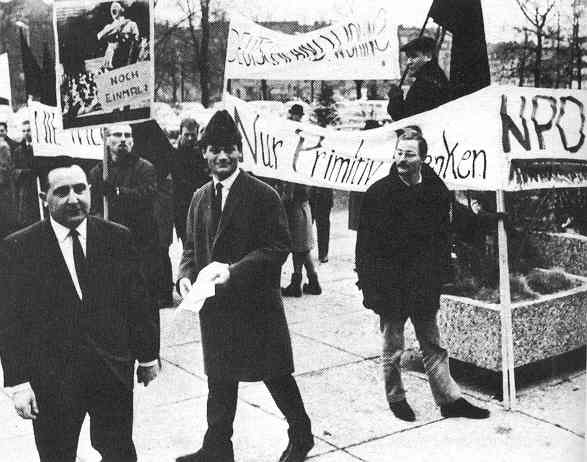
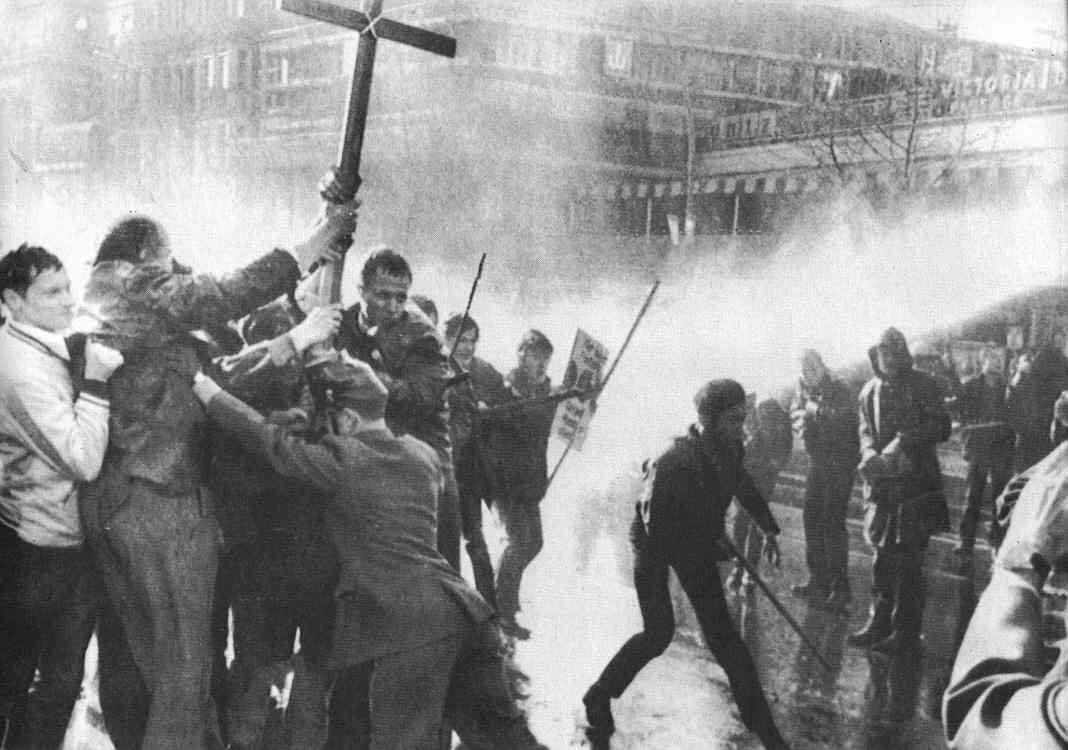
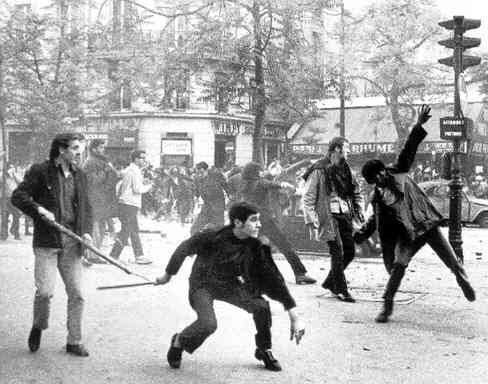
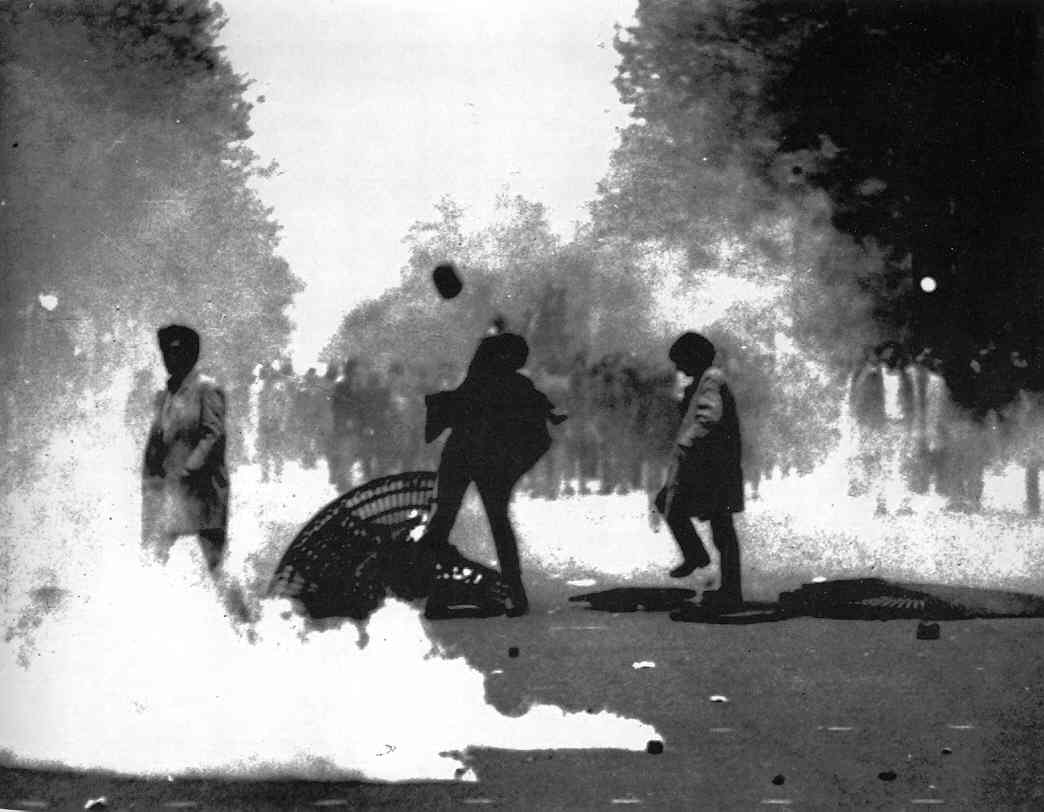
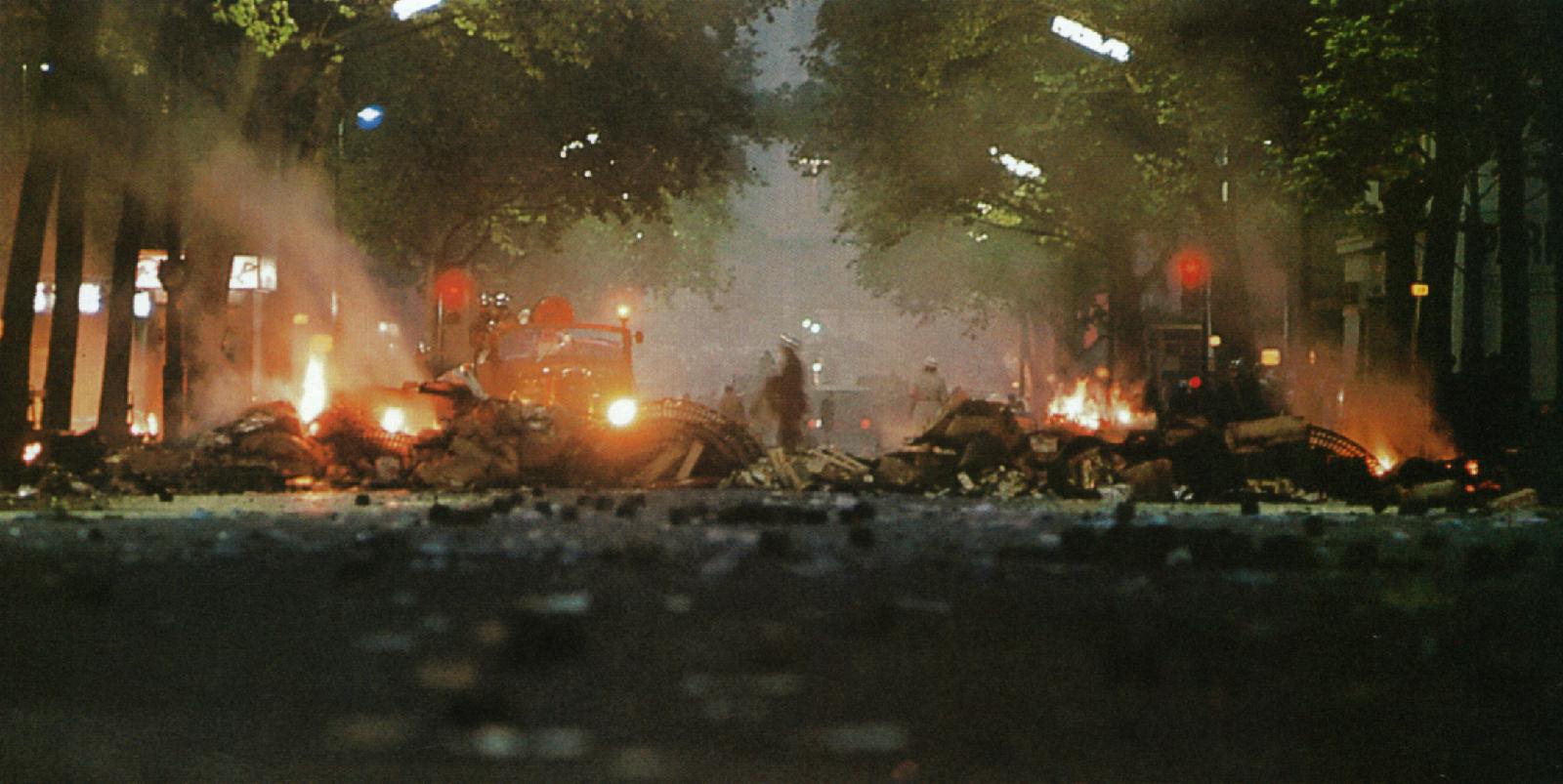
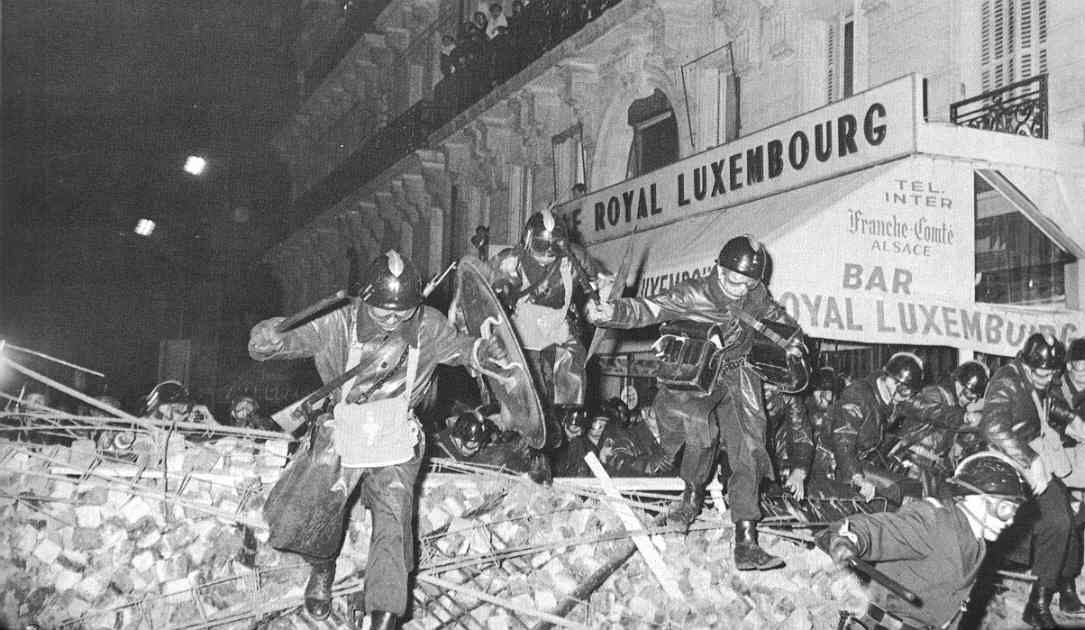
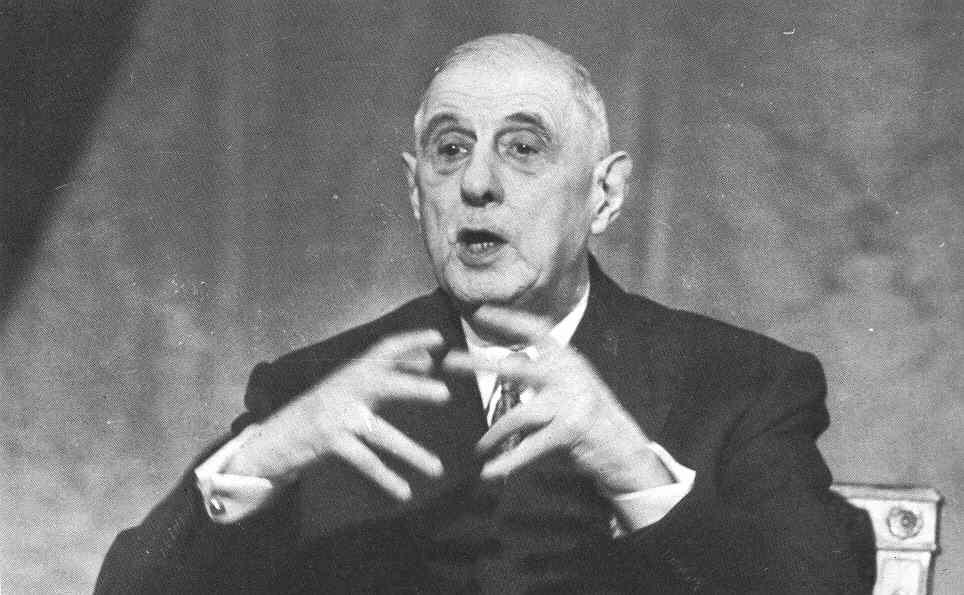
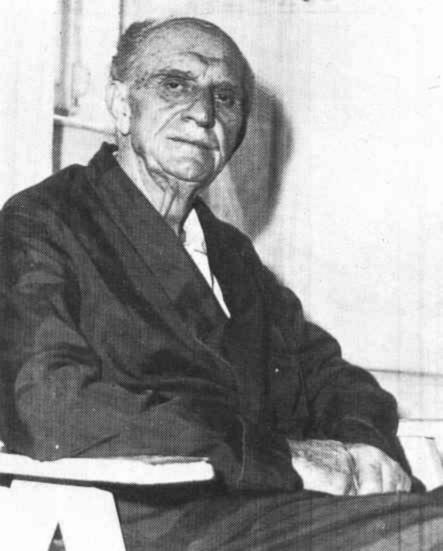
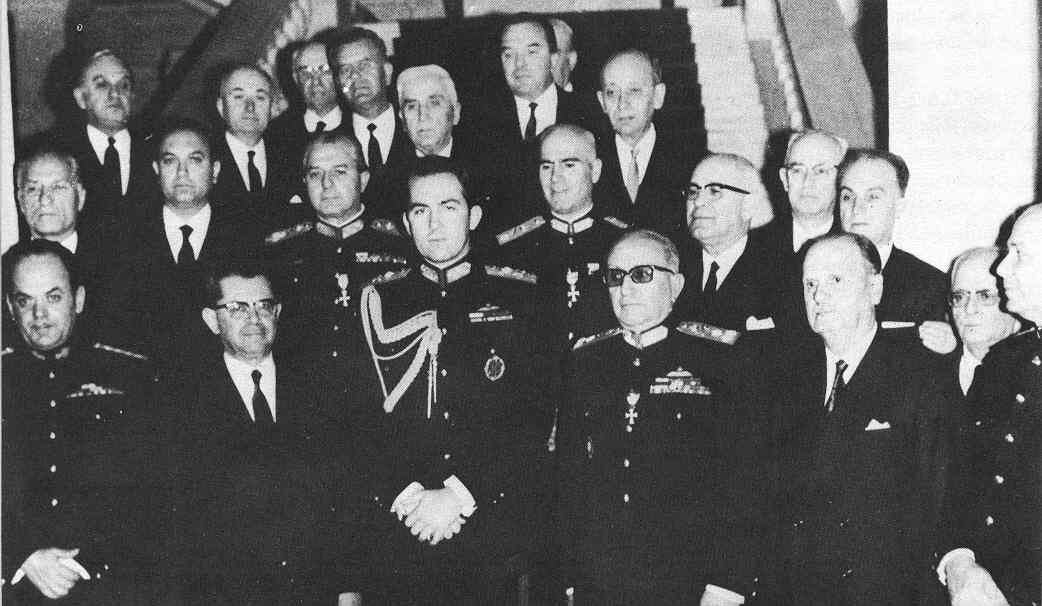

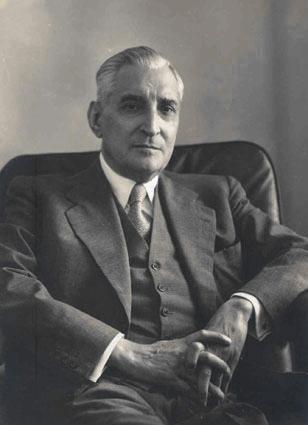
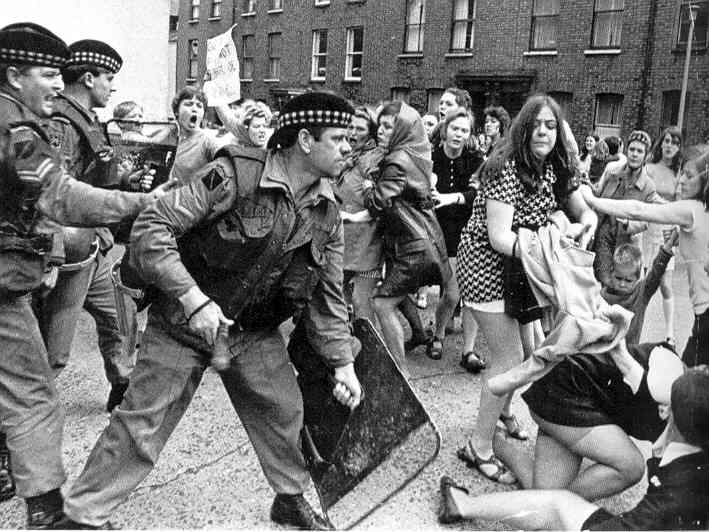
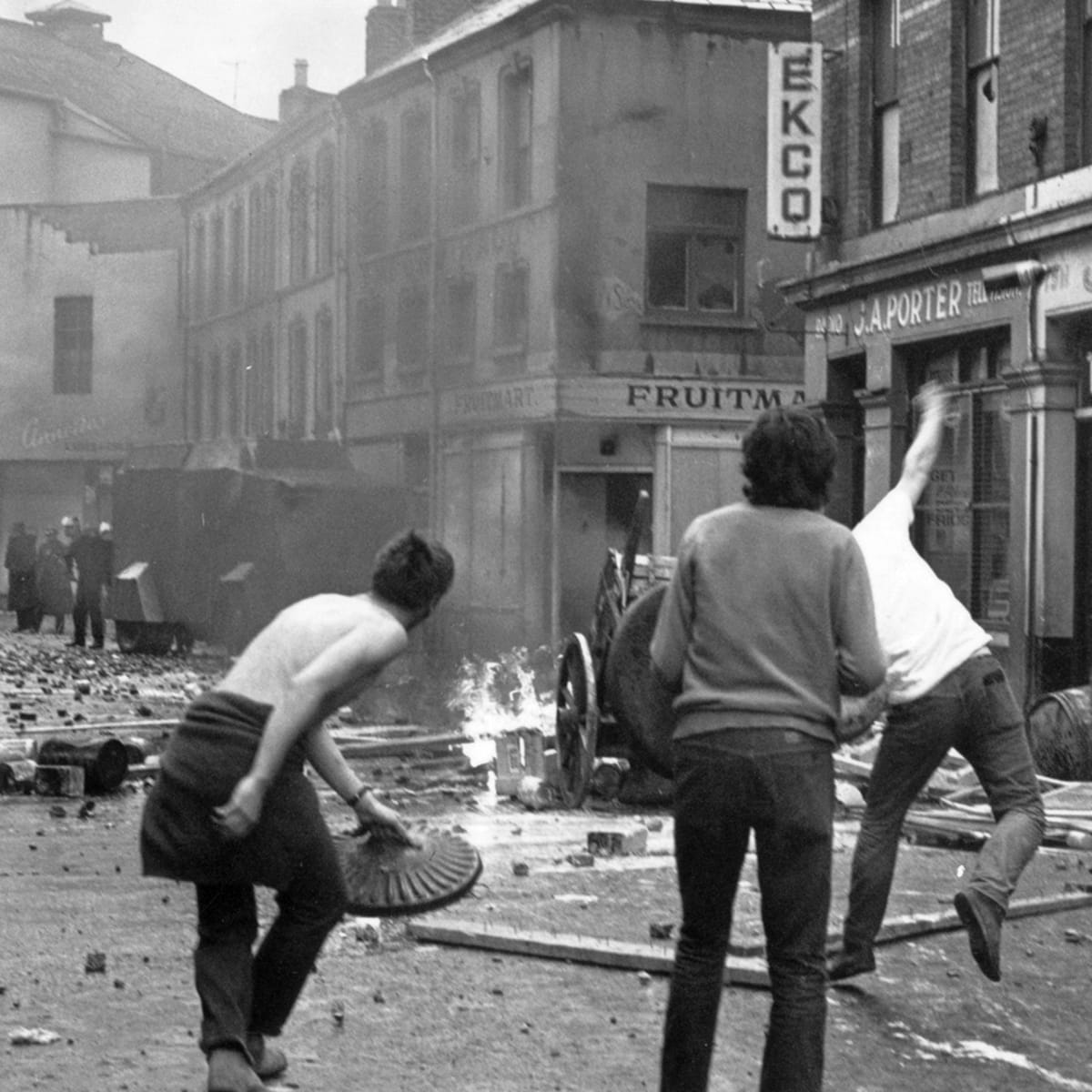
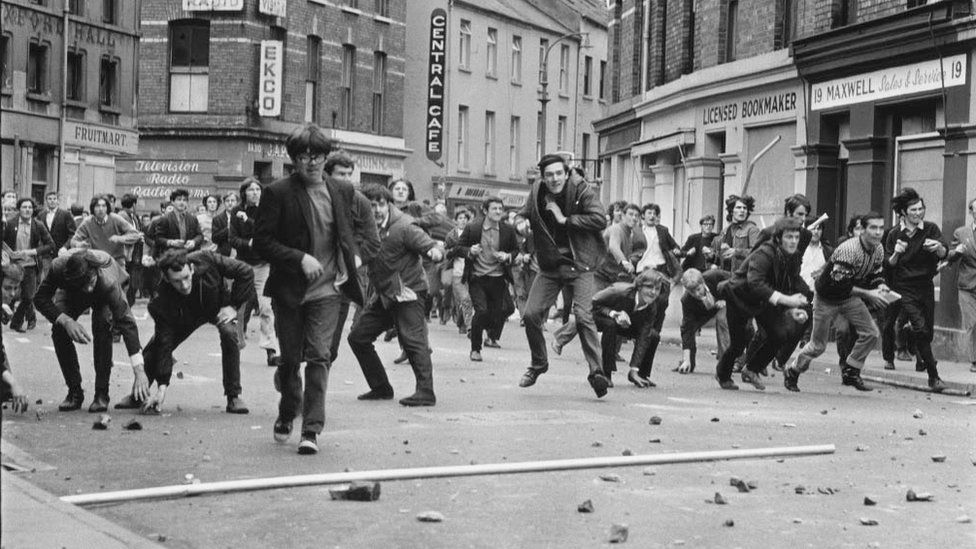
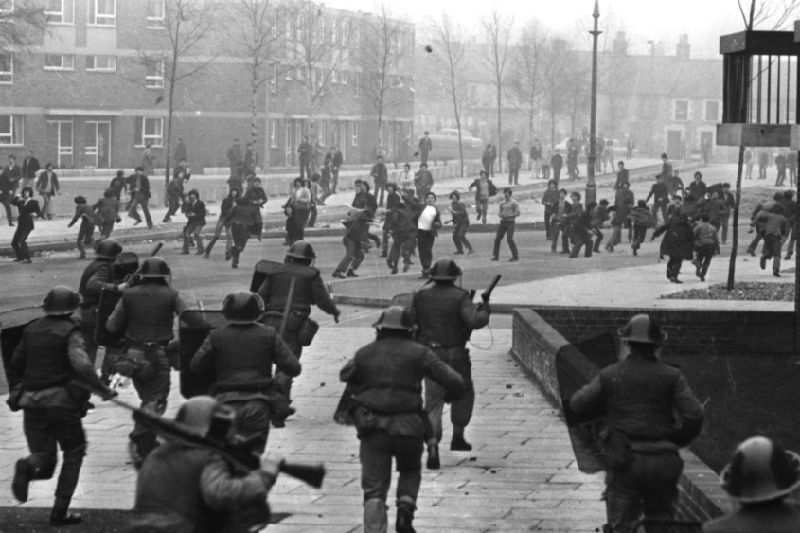
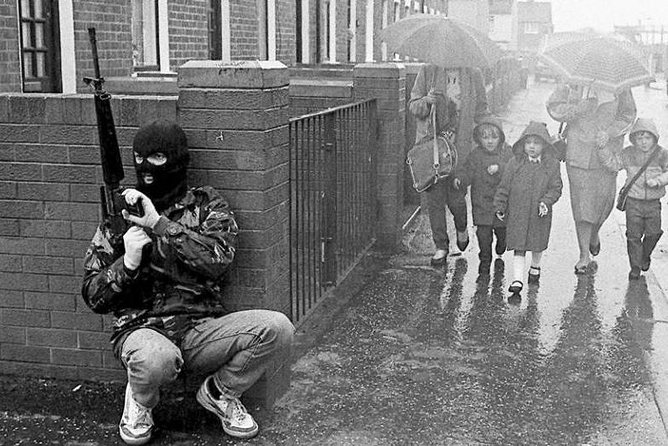
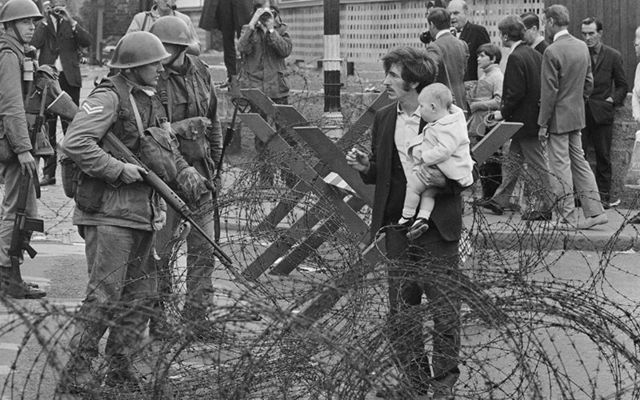

 Miles
H. Hodges
Miles
H. Hodges